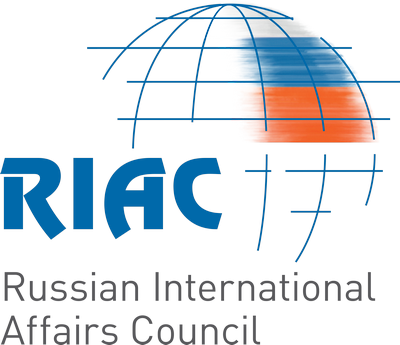RIAC PROJECT
Russian Diplomacy in Emigration:
Challenging the October Revolution
Russian diplomats from the Ministry of Foreign Affairs – stationed both at the central office and at foreign diplomatic missions, embassies and consulates – were among the first to mount a political challenge against the Bolsheviks after they had seized power in Petrograd. Unlike their Petrograd-based colleagues, who went on strike alongside other ministerial officials and thus brought the work of the entire government to a screeching halt, Russian diplomats abroad remained at their posts. While they refused to follow the foreign policy of the Bolsheviks, they stood up to protect the national interests of Russia and those of their fellow countrymen abroad. They condemned the separate peace concluded with Germany as a betrayal of the interests of the great nation of Russia, undermining its international status. Russian diplomats relieved thereafter of their duties by People's Commissar for Foreign Affairs Leon Trotsky thus found themselves in emigration. During the Civil War, they collaborated actively with the governments of Kolchak, Denikin and Wrangel, rendering them any required diplomatic assistance, and after the end of the Civil War, following the first de facto and subsequently de jure recognition of the Soviet Union by most foreign countries, continued to work under the direction of the Council of Ambassadors in the framework of special organizations representing the interests of Russian emigrants.
Russian mission in Teheran
On the Eve of October 1917
Overall Structure and staff of Russian Diplomatic Missions
At the time of the October Revolution of 1917, Russia, which was engaged at the time in the bloody war with Germany and bound by the military and political Entente Cordiale agreements with the United Kingdom and France, had six embassies (in the United Kingdom, France, Italy, Spain, the United States and Japan), 19 missions (to the Holy See, Portugal, Switzerland, Belgium, the Netherlands, Greece, Serbia, Montenegro, Romania, Sweden, Norway, Denmark, Argentina, Abyssinia, Persia, Siam, Mexico and one to Brazil, Uruguay, Paraguay and Chile); three diplomatic agencies (in Egypt, Morocco and Mongolia) and a vast network of consulates. The mission in Montenegro continued to work after its evacuation to the safety of the French city of Bordeaux, while the mission in the Serbian King operated from its temporary accommodations on the Greek island of Corfu.

Nikolai Giers
Most of the 28 Russian diplomats (see the Table) in charge of embassies, missions and agencies were members of Russian nobility or wealthy families, including, among others, Dmitry Nelidov, son of the prominent diplomat Aleksandr Nelidov; Mikhail Giers, son of former Minister of Foreign Affairs (1882–1895) Nikolai Giers; Konstantin Nabokov, son of former Russian Minister of Justice (1880–1885) Dmitry Nabokov; Iosif Loris-Melikov, nephew of former Minister of Internal Affairs (1880–1881) Mikhail Loris-Melikov; Prince Nikolai Kudashev, brother-in-law of former Minister of Foreign Affairs (1906–1910) Alexander Izvolsky; Matvey Sevastopulo, who came from one of the richest merchant dynasties of the Greeks of Odessa; Mikhail Meyendorff of the dynasty of barons; Vasily Krupensky, who came from a family of large landowners in Bessarabia; Stanislav Poklevsky-Kozell of the family of entrepreneurs from the Urals; and Prince of San Donato Elim Demidov from the famous Demidov dynasty. They were all graduates of the top educational institutions. French Ambassador to Russia Maurice Paléologue described Russian diplomats as people "whose minds were more or less swept with the ideas of Westernism, and who had been brought up reasonably along the lines of Western European standards and logic."
Russian mission in Beijing

Vasily Maklakov
While serving the Emperor, many of the diplomats still espoused liberal views and welcomed the February Revolution (Konstantin Nabokov and Iosif Loris-Melikov among them). However, there were also others, for instance, Mikhail Giers, a true veteran of the Russian foreign mission who was described by Boris Nolde as follows: "He did not retire after the February Revolution of 1917, did not shut himself up in annoyed denial. And this is where his whole approach to life found its expression, inspired by the awareness that the age-long and everlasting interests of Russia, the Russian people and the Russian state, were above any transient forces and even above the regime itself."
Despite their liberal or conservative views, the diplomats perceived their offices as serving the state of Russia, whose interests they were bound by law to protect. A heavily centralized institution, the Ministry of Foreign Affairs had taught them to rigorously follow the principal foreign policy line, including on war and the possibility of peace. The Ministry of Foreign Affairs considered, therefore, the beginning of separate peace talks between Russia and Germany under existing conditions to be a capitulation that would relinquish the country to Germany "without any guarantee of victory or subsequent reward for betraying the allies." The latter, in the extremely likely event that the allies would emerge victoriously, could entail retaliatory measures on the part of the allies against Russia for its treason. "We are therefore swapping our powerful friends for a dubious ally, a historical enemy of all Slavic peoples. A peace between the allied forces and Germany at Russia's expense now becomes a likely prospect," lawyer Georgy Mikhailovsky said when summing up the Ministry of Foreign Affairs approach.
In September 1917, the Provisional Government made at least three ambassadorial appointments from among liberal political circles: the well-known lawyer, Duma orator and member of the Constitutional Democratic (Kadet) Party Vasily Maklakov to France; former Governor General of Finland Mikhail Stakhovich to Spain; and former Minister of Healthcare, the progressive Ivan Efremov, to Switzerland. Minister of Foreign Affairs Mikhail Tereshchenko entrusted Maklakov with representing Russia at the Inter-Allied Conference in Paris in November 1917. He convinced Stakhovich to go to Madrid on the false belief that peace talks would actually start in the Spanish capital, so as to have "a prominent political and public figure representing Russia" there. According to the Bolsheviks, Efremov was on his way to Bern for the upcoming peace conference. However, it is quite possible that the underlying reason for this was a secret telegram from the Swiss Charge d'Affaires revealing that clandestine meetings had been held involving the sponsors of the two parties to discuss peace terms, during which the German side pressed vigorously for the Baltic states to be ceded to Germany and Finland to be granted independence [1].
Despite their liberal or conservative views, the diplomats perceived their offices as serving the state of Russia, whose interests they were bound by law to protect. A heavily centralized institution, the Ministry of Foreign Affairs had taught them to rigorously follow the principal foreign policy line, including on war and the possibility of peace. The Ministry of Foreign Affairs considered, therefore, the beginning of separate peace talks between Russia and Germany under existing conditions to be a capitulation that would relinquish the country to Germany "without any guarantee of victory or subsequent reward for betraying the allies." The latter, in the extremely likely event that the allies would emerge victoriously, could entail retaliatory measures on the part of the allies against Russia for its treason. "We are therefore swapping our powerful friends for a dubious ally, a historical enemy of all Slavic peoples. A peace between the allied forces and Germany at Russia's expense now becomes a likely prospect," lawyer Georgy Mikhailovsky said when summing up the Ministry of Foreign Affairs approach.
In September 1917, the Provisional Government made at least three ambassadorial appointments from among liberal political circles: the well-known lawyer, Duma orator and member of the Constitutional Democratic (Kadet) Party Vasily Maklakov to France; former Governor General of Finland Mikhail Stakhovich to Spain; and former Minister of Healthcare, the progressive Ivan Efremov, to Switzerland. Minister of Foreign Affairs Mikhail Tereshchenko entrusted Maklakov with representing Russia at the Inter-Allied Conference in Paris in November 1917. He convinced Stakhovich to go to Madrid on the false belief that peace talks would actually start in the Spanish capital, so as to have "a prominent political and public figure representing Russia" there. According to the Bolsheviks, Efremov was on his way to Bern for the upcoming peace conference. However, it is quite possible that the underlying reason for this was a secret telegram from the Swiss Charge d'Affaires revealing that clandestine meetings had been held involving the sponsors of the two parties to discuss peace terms, during which the German side pressed vigorously for the Baltic states to be ceded to Germany and Finland to be granted independence [1].
Russian missions and consulates in European countries

Mikhail Stakhovich
The three newly appointed ambassadors were on friendly terms. Two of them – Maklakov and Stakhovich – even shared a passion for the French language and culture. It is a documented fact that Maklakov and Efremov belonged to French Masonic lodges (proven by the Maklakov's Masonic membership card, which has been made public and has the revolutionary motto of "liberty, equality, fraternity" clearly visible on it) [2]. Stakhovich's membership with a masonic society was confirmed by Vladimir Bonch-Bruyevich [3]. Without going too deeply into the details of French and Russian political freemasonry at the time, which certainly had a role to play in the February Revolution of 1917, let us just mention the laconic statement made by British secret service agent Bruce Lockhart about Alexander Kerensky, stating that "he could only have continued in office under one condition: if in the summer/autumn 1917 the French and British governments had given him the opportunity to conclude a separate peace..." But his desire to continue the war against all odds was driven singularly by his masonic connections with France and the United Kingdom and his commitment to "keep his oath to the Grand Orient." Although a member of a lodge with a revolutionary motto, Maklakov nevertheless gave up on revolutionary ideas shortly after February 1917 and openly proclaimed the need to restore monarchy. "I, in turn, did not exult in the February 1917 events since the first moves of the Provisional Government to force [Grand Duke] Michael to abdicate the throne left no doubt in my mind that it would pave the way for a proper revolution" he observed in his letter to Prince Vladimir Obolensky in the late 1940s.
Russian embassies in Constantinople and Washington
Dawn of Coordination Efforts
October 27 (November 9), 1917 marked the beginning of Russia's non-Bolshevik representation abroad

Konstantin Nabokov
The morning of October 25 (November 7), 1917 saw Ambassadors Maklakov and Stakhovich arriving at the Gare du Nord station in Paris where they were greeted by the chef de protocol, Russian embassy staff, and journalists. The next day, Paris newspapers ran articles quoting Maklakov's statements. One of them flaunted the overconfident headline Russian Ambassador Maklakov is an Optimist. It quoted Maklakov as saying that Russia remained true to its allies. On October 26 (November 8), Maklakov headed to a meeting with French Minister of State Louis Barthou to deliver his diplomatic credentials. It was at this meeting that he learned of the Bolshevik takeover in Petrograd. Maklakov failed to deliver his credentials. He later admitted that he was inadvertently misled by Charge d'Affaires Sevastopulo, who talked him out of presenting his papers immediately. As a result, Maklakov found himself in a precarious position ahead of the Inter-Allied Conference.
Later, Maklakov would write: "I came here on the very day of the Bolshevik coup. In part sincerely, in part wishing to uphold confidence in Russia and keep the allies from despairing, I took the news of the takeover very calmly, predicting that it would be short-lived and in a few days or maybe weeks-months at the most – it would end without a trace; i.e., I was repeating what everyone in Russia was saying at the time, and not just me, but all Russians whose opinions were asked. The French were happy to see our confidence and believed it…"
October 27 (November 9), 1917 marked the beginning of Russia's non-Bolshevik representation abroad. That day, both Nabokov in London and Maklakov in Paris sent telegrams to their colleagues in Rome and Washington. The former urged diplomats "to coordinate their further actions," while the latter suggested, "establishing a uniform approach" to the events in Petrograd.
Later, Maklakov would write: "I came here on the very day of the Bolshevik coup. In part sincerely, in part wishing to uphold confidence in Russia and keep the allies from despairing, I took the news of the takeover very calmly, predicting that it would be short-lived and in a few days or maybe weeks-months at the most – it would end without a trace; i.e., I was repeating what everyone in Russia was saying at the time, and not just me, but all Russians whose opinions were asked. The French were happy to see our confidence and believed it…"
October 27 (November 9), 1917 marked the beginning of Russia's non-Bolshevik representation abroad. That day, both Nabokov in London and Maklakov in Paris sent telegrams to their colleagues in Rome and Washington. The former urged diplomats "to coordinate their further actions," while the latter suggested, "establishing a uniform approach" to the events in Petrograd.

Ivan Efremov
Nabokov appealed to Secretary of State for Foreign Affairs of the United Kingdom Arthur Balfour in a private letter, stating that if the overthrow of the Provisional Government was confirmed, he would "consider it contrary to the sovereign dignity of Russia to remain an official representative." Nabokov intended to refuse to convey to the British government the instructions "coming from a gang of traitors that have temporarily seized the power" [4]. In a personal meeting with Balfour, Nabokov indicated that his immediate concern was to identify all possible measures to preserve the Russo–Romanian front in order to prevent the enemy from winning the war on that front [5].
As a lawyer and proponent of legitimate government, Maklakov's first move was to judge the Bolshevik government in terms of the legitimate succession of power. "The forceful overthrow of the Provisional Government, which has disrupted the legitimate succession of power in Russia, as such succession is also possible during a revolutionary period, has thus called into question whether any government created by the latest overthrow can be considered a nationally recognized government of Russia similar to the one formed after the abdication of Nicholas II. I believe that a government made of the Bolsheviks could never be regarded as such," he wired to his colleagues. Maklakov was positive that "this instant or very soon" the government would, no doubt, "stir up vigorous opposition in the country," and even if seemingly successful, its success would be short-lived and end in complete failure.
Maklakov, therefore, deemed it impossible to recognize a government which had "emerged as the result of a mutiny, was built on pure violence and remained committed to a deliberately catastrophic programme for Russia." However, being a politician, he did not completely rule out a compromise. "If, as a result of the latest events in Petrograd a new government is formed based on compromise between the Bolsheviks and less radical elements, in that case, I believe the attitude towards it should be determined by its programme, the manner of its creation, its makeup and the general national sentiment towards it," he noted [6].
As a lawyer and proponent of legitimate government, Maklakov's first move was to judge the Bolshevik government in terms of the legitimate succession of power. "The forceful overthrow of the Provisional Government, which has disrupted the legitimate succession of power in Russia, as such succession is also possible during a revolutionary period, has thus called into question whether any government created by the latest overthrow can be considered a nationally recognized government of Russia similar to the one formed after the abdication of Nicholas II. I believe that a government made of the Bolsheviks could never be regarded as such," he wired to his colleagues. Maklakov was positive that "this instant or very soon" the government would, no doubt, "stir up vigorous opposition in the country," and even if seemingly successful, its success would be short-lived and end in complete failure.
Maklakov, therefore, deemed it impossible to recognize a government which had "emerged as the result of a mutiny, was built on pure violence and remained committed to a deliberately catastrophic programme for Russia." However, being a politician, he did not completely rule out a compromise. "If, as a result of the latest events in Petrograd a new government is formed based on compromise between the Bolsheviks and less radical elements, in that case, I believe the attitude towards it should be determined by its programme, the manner of its creation, its makeup and the general national sentiment towards it," he noted [6].

Mikhail Meyendorff
Following Nabokov and Maklakov, on October 28 (November 10), the Copenhagen mission led by Charge d'Affaires Meyendorff circulated a wire to Russian diplomatic missions located in the capitals of key European allied and neutral powers. The telegram was signed by the diplomats of the Copenhagen mission, the clergy of the mission's church, military officers and commercial agents, the marine agent and the Consul General. As if in tune with Maklakov's thoughts, the telegram denied the possibility of the Copenhagen mission and general consulate staff recognizing the legitimacy of the takeover in Petrograd. Deeming themselves representatives of the Russia, "in inviolable union with the countries waging war against the Central Powers," they resolved to maintain and uphold contacts with the allied and neutral countries in this regard [7]. The telegram also asked colleagues to advise them of their respective decisions "for the sake of coordinating actions."

Boris Bakhmetev
On October 28 (November 10), the veteran of Russia's representation abroad Mikhail Giers communicated his stance. He definitively endorsed Maklakov's appraisal of the events in Petrograd and articulated the main vector for continuing his work: "waiving new policy instructions," which could come through from the Bolsheviks any time now, "to continue, where possible, the work of a representative and protector of the interests of Russia and its citizens in Italy" [8]. In the event of a new government compromise, Giers suggested waiting for its policy on the war to be formed. Bakhmetev also supported Maklakov's line. All published official and unofficial statements of the Russian Embassy in the United States maintained that "the Bolshevik government, no matter how wide and successful its disruptive and demoralizing actions, cannot speak for the Russian people" [9]. Bakhmetev noted that the reality was based "on the natural wish of America to not take actions that would facilitate Russia's withdrawal from the war, and postpone raising the issue point-blank to the very last" [10]. With such an attitude on the part of the United States, Bakhmetev did not even rule out the possibility that the United States might maintain business contacts with the Petrograd government, biding time until a possible new "regrouping of political forces in Russia" took place. Personally, Bakhmetev was "quite sympathetic" to the stance taken by the United States, arguing that the best possible position for the allies during the transitional period would be to "not expedite events and not push the Bolshevik committee to take irrevocable actions, such as pulling out of the war, while deliberately protracting the process until the military and political reality reveals the true alignment of forces" [11]. Bakhmetev absolutely agreed with Maklakov's opinion that, in the event of a new coalition or a compromise, they would have to "thoroughly evaluate the new situation."
The majority of diplomats endorsed Maklakov's view. Nabokov alone spoke strongly against any government formed on the basis of a compromise with the Bolsheviks since "it could enjoy neither the status, nor the authority, nor the confidence."
The Issue of Russian Representation at the Inter-Allied Conference
One of the main tasks of Russian diplomats in the first weeks following the October Revolution was to ensure that Russia's representatives were invited to the Inter-Allied Conference scheduled to take part in Paris in late November 1917. Diplomats were aware that the allies were likely to stop regarding Russia as a great power. On November 5 (18), Nabokov sent a cable to his colleagues informing them that at the conference, the allies were to consider their policy towards Russia for the near future, and therefore it was vital to make sure that Russian diplomatic officials in France, Japan, Italy and the United Kingdom took part in the discussions. "There can be no doubt that we would have failed in our duty to Russia if, on the formal pretext of the lack of the required official authorities, we acquiesced to Russia's removal from the allied councils," he noted.
The majority of diplomats endorsed Maklakov's view. Nabokov alone spoke strongly against any government formed on the basis of a compromise with the Bolsheviks since "it could enjoy neither the status, nor the authority, nor the confidence."
The Issue of Russian Representation at the Inter-Allied Conference
One of the main tasks of Russian diplomats in the first weeks following the October Revolution was to ensure that Russia's representatives were invited to the Inter-Allied Conference scheduled to take part in Paris in late November 1917. Diplomats were aware that the allies were likely to stop regarding Russia as a great power. On November 5 (18), Nabokov sent a cable to his colleagues informing them that at the conference, the allies were to consider their policy towards Russia for the near future, and therefore it was vital to make sure that Russian diplomatic officials in France, Japan, Italy and the United Kingdom took part in the discussions. "There can be no doubt that we would have failed in our duty to Russia if, on the formal pretext of the lack of the required official authorities, we acquiesced to Russia's removal from the allied councils," he noted.
The Creation of a Unifying Centre
Diplomatic missions essentially could not operate without a coordinating hub. The members of the Copenhagen mission headed by Meyendorff were the first to voice the idea.

Yury Solovyov
The idea of a unifying centre of Russian foreign representation occurred to several diplomats simultaneously and independently. The members of the Copenhagen mission headed by Meyendorff were the first to voice the idea in their response to Nabokov's message to do everything in their power to help Russian representatives retain voting rights in allied councils [12]. On November 6 (19), the staff circulated a wire across missions in London, Paris, Rome, Washington, Madrid and Tokyo stating that, in view of the possibility of the anarchy lingering in Petrograd and the temporary lack of a coordinating centre supervising the representation of Russia in allied and neutral countries, they believed "it would be an opportune time to raise the question of entrusting the head of one of the embassies with the general leadership of all Russian embassies and missions abroad" [13]. According to them, such a show of solidarity, in addition to its value for Russia's interests, could only produce a favourable impression on allied and neutral governments, as well as boost public opinion.
Following in their footsteps, on November 7 (20), Yury Solovyov sent an urgent telegram to a number of colleagues in Madrid. In the wire, he suggested that it would be advisable to temporarily designate the Paris embassy the centre of activities of all Russian foreign agencies in Europe and resolve some routine matters [14]. Therefore, it was Solovyov who first suggested the idea of nominating the Russian Embassy in Paris led by Maklakov the coordinating centre to his colleagues. Later on in his memoirs, Solovyov, who would eventual return to Soviet Russia, understandably lent a pro-Soviet touch to the post-October period of his activities in Madrid, leaving this fact out of the story.
Where the proposal coming from the Copenhagen mission was related directly to the upcoming Inter-Allied Conference, Solovyov's initiative was necessitated by a "delay in the resumption of the normal course of action" at the Ministry of Foreign Affairs in Petrograd, which prevented the resolution of urgent day-to-day issues. The truth is that diplomatic missions essentially could not operate without a coordinating hub, since the pre-revolutionary Ministry of Foreign Affairs as a whole, and its foreign missions, in particular, were traditionally characterized by a high degree of centralization. According to Georgy Mikhailovsky, there were no independent-thinking people even on the top rungs of the diplomatic ladder. Service in the ministry relied entirely on rigid discipline and conscientious execution, "and put in a situation that required them to think independently and assume responsibility, people accustomed only to obeying without question showed extreme irresoluteness and were completely at a loss" [15].
Following in their footsteps, on November 7 (20), Yury Solovyov sent an urgent telegram to a number of colleagues in Madrid. In the wire, he suggested that it would be advisable to temporarily designate the Paris embassy the centre of activities of all Russian foreign agencies in Europe and resolve some routine matters [14]. Therefore, it was Solovyov who first suggested the idea of nominating the Russian Embassy in Paris led by Maklakov the coordinating centre to his colleagues. Later on in his memoirs, Solovyov, who would eventual return to Soviet Russia, understandably lent a pro-Soviet touch to the post-October period of his activities in Madrid, leaving this fact out of the story.
Where the proposal coming from the Copenhagen mission was related directly to the upcoming Inter-Allied Conference, Solovyov's initiative was necessitated by a "delay in the resumption of the normal course of action" at the Ministry of Foreign Affairs in Petrograd, which prevented the resolution of urgent day-to-day issues. The truth is that diplomatic missions essentially could not operate without a coordinating hub, since the pre-revolutionary Ministry of Foreign Affairs as a whole, and its foreign missions, in particular, were traditionally characterized by a high degree of centralization. According to Georgy Mikhailovsky, there were no independent-thinking people even on the top rungs of the diplomatic ladder. Service in the ministry relied entirely on rigid discipline and conscientious execution, "and put in a situation that required them to think independently and assume responsibility, people accustomed only to obeying without question showed extreme irresoluteness and were completely at a loss" [15].

Konstantin Gulkevich
Thus, Russian diplomats did not take too long to respond to the questions raised by Copenhagen or Madrid missions. However, the responses were varied. For instance, Konstantin Gulkevich doubted that such a move was even legitimate. On November 8 (October 26), citing the telegram from Denmark, he telegraphed his colleagues to say that while he welcomed "any manifestation unanimity between the officials of our establishment," he, however, believed that offices of the Ministry of Foreign Affairs located abroad "cannot be isolated into a standalone organization." Such an organization, according to Gulkevich, "bereft of any grounds for representation and cut off by the ongoing events from its homeland, will inevitably become self-centred, assume the right to regard itself as a representative of this or that government and enter upon the path of declarative acts." However, Gulkevich continued, should other Russian embassies and missions recognize the idea proposed by the Copenhagen mission desirable and practical, he, to maintain solidarity with his colleagues, would nominate Giers as a possible leader "as an ambassador whose remarkable track record is so happily related to our establishment."
Maklakov also made a decision. He was prepared, in view of the geographic location of Paris and its importance as a major political centre, to assist in "the formation of a uniform approach across foreign diplomatic missions to the new government in Russia [16]. For the purposes of other general matters concerning Russian foreign missions, Maklakov indicated that he was at the service of his colleagues to ascertain the general viewpoint by centralizing the information. "Such assistance can, however, be restricted to facilitating contacts, and in no event can it involve leadership or guidance on local matters," stipulated Maklakov as a reservation [17].
The discussion by telegraph was, in a manner of speaking, resolved by Giers, the longest serving ambassador currently in office. According to him, such an exchange of ideas was not binding and did not aim to create an organization for demonstrative purposes. He wholeheartedly agreed with Maklakov's view. "There is no need for any kind of leadership. Paris is, of course, a centre that can facilitate such an exchange," Giers observed [18]. Giers' authority worked to ease the last remaining doubts. The Paris Embassy became the coordinating hub.
In late November-early December 1917, the 18th Inter-Allied Conference was held in Paris. The following format of participation for Russian representatives was decided upon: Sevastopulo would be admitted to the official opening and closing ceremonies, while Maklakov would be admitted to the private meetings. The latter was asked to voice his opinion on the suggestion of British Ambassador to Petrograd George Buchanan that Russia should be freed from its obligation to take part in the war. Maklakov voiced his disapproval of the idea but advised the allied forces not to demand much from Russia. When asked to prepare the resolution, Maklakov wrote a document along the lines of those drawn up by Colonel Edward House, advisor to President of the United States Woodrow Wilson, at the conference. The text of the joint Maklakov–House resolution has been preserved. It is obvious that Maklakov acted in accordance with Bakhmetev's recommendations: letting U.S .peace terms be his guide.
Maklakov also made a decision. He was prepared, in view of the geographic location of Paris and its importance as a major political centre, to assist in "the formation of a uniform approach across foreign diplomatic missions to the new government in Russia [16]. For the purposes of other general matters concerning Russian foreign missions, Maklakov indicated that he was at the service of his colleagues to ascertain the general viewpoint by centralizing the information. "Such assistance can, however, be restricted to facilitating contacts, and in no event can it involve leadership or guidance on local matters," stipulated Maklakov as a reservation [17].
The discussion by telegraph was, in a manner of speaking, resolved by Giers, the longest serving ambassador currently in office. According to him, such an exchange of ideas was not binding and did not aim to create an organization for demonstrative purposes. He wholeheartedly agreed with Maklakov's view. "There is no need for any kind of leadership. Paris is, of course, a centre that can facilitate such an exchange," Giers observed [18]. Giers' authority worked to ease the last remaining doubts. The Paris Embassy became the coordinating hub.
In late November-early December 1917, the 18th Inter-Allied Conference was held in Paris. The following format of participation for Russian representatives was decided upon: Sevastopulo would be admitted to the official opening and closing ceremonies, while Maklakov would be admitted to the private meetings. The latter was asked to voice his opinion on the suggestion of British Ambassador to Petrograd George Buchanan that Russia should be freed from its obligation to take part in the war. Maklakov voiced his disapproval of the idea but advised the allied forces not to demand much from Russia. When asked to prepare the resolution, Maklakov wrote a document along the lines of those drawn up by Colonel Edward House, advisor to President of the United States Woodrow Wilson, at the conference. The text of the joint Maklakov–House resolution has been preserved. It is obvious that Maklakov acted in accordance with Bakhmetev's recommendations: letting U.S .peace terms be his guide.
Legitimation and Financing
Having organized themselves into a unified group around the Paris embassy, Russian diplomats were now faced with another urgent problem – the Ministry of Foreign Affairs had stopped centralized funding.

Iosif Loris-Melikov
The Formula for Legitimacy
In the absence of a nationally recognized authority, diplomats were hard-pressed to define on whose behalf they were acting. Maklakov found a solution in his cable to Russia's representative in Siam, Loris-Melikov: the lack of a legitimate government in Russia has prevented diplomats from resigning since there is no one who can accept these resignations. Resignation in the current situation would be an indirect recognition of Lenin's government, which had not been recognized either by Russia or by the Ministry of Foreign Affairs. The overthrow of the government, therefore, did not entail the cancellation of all regulations it enacted or the deposition of all appointees. According to Maklakov, the diplomats still served the last legitimate government of Russia and had to continue in office until another legitimate government was formed. It should be mentioned, however, that Maklakov himself was perfectly aware of the fictitious nature of such a formula. Subsequently, in his correspondence with Bakhmetev in 1927, he mentioned that there had been no valid constitution in Russia since the abdication of the Grand Duke Michael Alexandrovich of Russia, and no law could be invoked, since the Provisional Government, knowingly and thoroughly, severed any ties with the old regime by omitting to make public the appointment of Prince Georgy Lvov as the supreme authority. "It would be impossible to designate the government as a self-sufficient force drawing its powers from the continuity of legitimate authority, as we sometimes imagined with the Council of Ambassadors or White governments," Maklakov wrote [19]. In another letter, he explored the subject of legitimacy with even more accuracy: "… from the moment of the abdication of Nicholas, there was no telling what was law and what wasn't; all we could do was to hold on to the old regulations and people, as we outside the country held on to old ambassadors and consuls after the Bolsheviks came to power" [20].
In the absence of a nationally recognized authority, diplomats were hard-pressed to define on whose behalf they were acting. Maklakov found a solution in his cable to Russia's representative in Siam, Loris-Melikov: the lack of a legitimate government in Russia has prevented diplomats from resigning since there is no one who can accept these resignations. Resignation in the current situation would be an indirect recognition of Lenin's government, which had not been recognized either by Russia or by the Ministry of Foreign Affairs. The overthrow of the government, therefore, did not entail the cancellation of all regulations it enacted or the deposition of all appointees. According to Maklakov, the diplomats still served the last legitimate government of Russia and had to continue in office until another legitimate government was formed. It should be mentioned, however, that Maklakov himself was perfectly aware of the fictitious nature of such a formula. Subsequently, in his correspondence with Bakhmetev in 1927, he mentioned that there had been no valid constitution in Russia since the abdication of the Grand Duke Michael Alexandrovich of Russia, and no law could be invoked, since the Provisional Government, knowingly and thoroughly, severed any ties with the old regime by omitting to make public the appointment of Prince Georgy Lvov as the supreme authority. "It would be impossible to designate the government as a self-sufficient force drawing its powers from the continuity of legitimate authority, as we sometimes imagined with the Council of Ambassadors or White governments," Maklakov wrote [19]. In another letter, he explored the subject of legitimacy with even more accuracy: "… from the moment of the abdication of Nicholas, there was no telling what was law and what wasn't; all we could do was to hold on to the old regulations and people, as we outside the country held on to old ambassadors and consuls after the Bolsheviks came to power" [20].

Elim Demidov
Problems with Financing
Having organized themselves into a unified group around the Paris embassy, Russian diplomats were now faced with another urgent problem, namely, that of securing financing for their continued operations, since the Ministry of Foreign Affairs had stopped centralized funding. A number of embassies and missions had public money at their disposal – money that had been transferred to them remitted prior to October 2017 and earmarked for other purposes – but diplomats hesitated to use it without explicit ministerial instructions. Nabokov entered into talks with the British government on the possibility of extending lines of credit to Russian diplomatic missions and consulates; for his part, Maklakov opened negotiations with the French government. However, in late January 1918, Her Majesty's Exchequer in the United Kingdom denied the request for financing to the Russian diplomatic missions abroad, with only the Russian embassy and consulates in the United Kingdom receiving a reduced amount.
Left in dire straits, Russian diplomats had to raise the money on their own based on the local situation. For instance, Gulkevich put the public money that was at the disposal of the Stockholm mission into a six-month deposit account. "No one can touch it before the term is up. If the order prevails, we dispose of it in line with the ministerial instructions. Should our enemies win and we do not return to power in six months, then the captors of Russia can make use of even this trophy…," he noted in a letter to Olaf Broch in November 1917. However, at the beginning of December 1917, Gulkevich decided, in agreement with the French government, to use money at the mission's disposal to buy French war bonds. He did not consider it possible to use the money without instructions but resolved to pay out small amounts to the staff from the accruing interest (120,000 francs a year, or some 60,000 kronor) [21]. He financed his own operations in the office with his own money.
The Ambassador to Beijing, Prince Nikolai Kudashev, obtained an interest-free loan of 40,000 pounds sterling for the upcoming third of the year (as a rule, Russian diplomatic missions received financing for thirds of the year) from the Russian–Asian Bank against the security of the Boxer Protocol – a contribution paid by the Chinese government as compensation for damages incurred in the Boxer Rebellion of 1900. The money was used to finance the operation of all Russian diplomatic missions in the Far East. Later on, the credit line was expanded to 45,000 pounds sterling a year. Ambassador to Madrid Stakhovich, who arrived at his duty station after the Bolshevik coup and failed to deliver his credentials, lived at his own expense for a while. In Washington, the U.S. government allowed Bakhmetev to spend (under its control) public money transferred initially to the Ambassador's personal accounts. Bakhmetev was able to use the money to support Russian diplomatic missions in South America and Spain. Russia's mission in Greece received a loan from the Greek Ministry of Foreign Affairs. It was also paid an annual amount of 300,000 francs a year in repayment of a loan extended by Russia to Greece in 1839. Ambassador Demidov financed his activities with his personal funds. In Buenos Aires, the mission was kept in operation until October 1919 partly thanks to the personal funds of Ambassador Eugene Stein, and partly with church income (some 40 pounds sterling a month) and money granted to the ambassador by Orthodox Syrians and the Russian Circle in Rosario (16 pounds sterling a month).
Having organized themselves into a unified group around the Paris embassy, Russian diplomats were now faced with another urgent problem, namely, that of securing financing for their continued operations, since the Ministry of Foreign Affairs had stopped centralized funding. A number of embassies and missions had public money at their disposal – money that had been transferred to them remitted prior to October 2017 and earmarked for other purposes – but diplomats hesitated to use it without explicit ministerial instructions. Nabokov entered into talks with the British government on the possibility of extending lines of credit to Russian diplomatic missions and consulates; for his part, Maklakov opened negotiations with the French government. However, in late January 1918, Her Majesty's Exchequer in the United Kingdom denied the request for financing to the Russian diplomatic missions abroad, with only the Russian embassy and consulates in the United Kingdom receiving a reduced amount.
Left in dire straits, Russian diplomats had to raise the money on their own based on the local situation. For instance, Gulkevich put the public money that was at the disposal of the Stockholm mission into a six-month deposit account. "No one can touch it before the term is up. If the order prevails, we dispose of it in line with the ministerial instructions. Should our enemies win and we do not return to power in six months, then the captors of Russia can make use of even this trophy…," he noted in a letter to Olaf Broch in November 1917. However, at the beginning of December 1917, Gulkevich decided, in agreement with the French government, to use money at the mission's disposal to buy French war bonds. He did not consider it possible to use the money without instructions but resolved to pay out small amounts to the staff from the accruing interest (120,000 francs a year, or some 60,000 kronor) [21]. He financed his own operations in the office with his own money.
The Ambassador to Beijing, Prince Nikolai Kudashev, obtained an interest-free loan of 40,000 pounds sterling for the upcoming third of the year (as a rule, Russian diplomatic missions received financing for thirds of the year) from the Russian–Asian Bank against the security of the Boxer Protocol – a contribution paid by the Chinese government as compensation for damages incurred in the Boxer Rebellion of 1900. The money was used to finance the operation of all Russian diplomatic missions in the Far East. Later on, the credit line was expanded to 45,000 pounds sterling a year. Ambassador to Madrid Stakhovich, who arrived at his duty station after the Bolshevik coup and failed to deliver his credentials, lived at his own expense for a while. In Washington, the U.S. government allowed Bakhmetev to spend (under its control) public money transferred initially to the Ambassador's personal accounts. Bakhmetev was able to use the money to support Russian diplomatic missions in South America and Spain. Russia's mission in Greece received a loan from the Greek Ministry of Foreign Affairs. It was also paid an annual amount of 300,000 francs a year in repayment of a loan extended by Russia to Greece in 1839. Ambassador Demidov financed his activities with his personal funds. In Buenos Aires, the mission was kept in operation until October 1919 partly thanks to the personal funds of Ambassador Eugene Stein, and partly with church income (some 40 pounds sterling a month) and money granted to the ambassador by Orthodox Syrians and the Russian Circle in Rosario (16 pounds sterling a month).
The Telegram from Trotsky
Trotsky was reminded of the diplomats by French newspapers, which reported on Maklakov's participation in the Inter-Allied Conference. This spurred Trotsky into action.
Up until mid-November 1917 (Julian calendar), it seemed as though People's Commissar for Foreign Affairs Leon Trotsky was completely unaware of the existence of Russian diplomatic representatives abroad: for a long time, he spent most of his time at Smolny without paying a single visit to his People's Commissariat for Foreign Affairs. Trotsky was reminded of the diplomats by French newspapers, which reported on Maklakov's participation in the Inter-Allied Conference. This spurred Trotsky into action.
On November 17 (30), the Pravda newspaper published Trotsky's ministerial decree (apparently, the Narkomindel abbreviation that stood for the People's Commissariat for Foreign Affairs was still new to him), which said that "Mr Maklakov, who was appointed to a diplomatic post in Paris under the previous government, is stripped of any and all powers. His participation in the Allied Conference reported by official French newspapers would, therefore, be a blatant state crime and entail heavy punishment" [22]. On the same day, Trotsky circulated a telegram among all Russian diplomatic representatives that was drawn up, as the diplomatic rules of the time required, in French. The telegram said that "the Council of People's Commissars suggests that all staff members of the embassy respond immediately as for whether or not they are prepared to pursue a foreign policy as determined by the Congress of Soviets." All those diplomatic representatives in disagreement with the Soviet foreign policies were forced to step down effective immediately, transferring their work to their subordinates, regardless of their prior posts, if they were ready to submit to the new authorities. Any attempts by diplomatic officials to pursue former policies would be regarded as the gravest state crime [23].
However, Maklakov did not receive Trotsky's telegram until November 22 (December 5). The next day, he telegraphed his colleagues that he had left the telegram unanswered. French Minister of Foreign Affairs Stephen Pichon "quite agreed" with Maklakov's decision; he informed Maklakov of this in advance so as not to, in his words, tie up the hands of the French government with his decisions. Pichon decided against going public with Trotsky's telegram. Further, Maklakov drew the attention of Pichon, as well as that of Colonel House, to the fact that "it was inadvisable for neutral countries to express their stance on the recognition of Lenin's government before other countries" [24].
Many Russian diplomatic representatives followed Maklakov's lead and left Trotsky's telegram unanswered, with the exception of Solovyov in Madrid and Ungern-Sternberg in Portugal. They were both boycotted by their colleagues and diplomats of the allied countries.
On November 26 (December 9), a new decree by Trotsky was issued saying that "in view of the lack of response to the telegrams and radiotelegrams to ambassadors, envoys, embassy employees, etc., of the Russian Republic suggesting that they immediately reply whether or not they agreed to work under the authority of the Soviet regime based on the platform of the Second All-Russian Congress of Soviets, they are hereby relieved of their duties without the right to a pension or be appointed to any public posts." They were equally stripped of the right to make any kind of withdrawal from public funds [25]. The order listed the names of only 28 Russian diplomats – ambassadors, envoys, charges d'affaires, counsellors, general consuls, one first secretary and one consul.
On November 17 (30), the Pravda newspaper published Trotsky's ministerial decree (apparently, the Narkomindel abbreviation that stood for the People's Commissariat for Foreign Affairs was still new to him), which said that "Mr Maklakov, who was appointed to a diplomatic post in Paris under the previous government, is stripped of any and all powers. His participation in the Allied Conference reported by official French newspapers would, therefore, be a blatant state crime and entail heavy punishment" [22]. On the same day, Trotsky circulated a telegram among all Russian diplomatic representatives that was drawn up, as the diplomatic rules of the time required, in French. The telegram said that "the Council of People's Commissars suggests that all staff members of the embassy respond immediately as for whether or not they are prepared to pursue a foreign policy as determined by the Congress of Soviets." All those diplomatic representatives in disagreement with the Soviet foreign policies were forced to step down effective immediately, transferring their work to their subordinates, regardless of their prior posts, if they were ready to submit to the new authorities. Any attempts by diplomatic officials to pursue former policies would be regarded as the gravest state crime [23].
However, Maklakov did not receive Trotsky's telegram until November 22 (December 5). The next day, he telegraphed his colleagues that he had left the telegram unanswered. French Minister of Foreign Affairs Stephen Pichon "quite agreed" with Maklakov's decision; he informed Maklakov of this in advance so as not to, in his words, tie up the hands of the French government with his decisions. Pichon decided against going public with Trotsky's telegram. Further, Maklakov drew the attention of Pichon, as well as that of Colonel House, to the fact that "it was inadvisable for neutral countries to express their stance on the recognition of Lenin's government before other countries" [24].
Many Russian diplomatic representatives followed Maklakov's lead and left Trotsky's telegram unanswered, with the exception of Solovyov in Madrid and Ungern-Sternberg in Portugal. They were both boycotted by their colleagues and diplomats of the allied countries.
On November 26 (December 9), a new decree by Trotsky was issued saying that "in view of the lack of response to the telegrams and radiotelegrams to ambassadors, envoys, embassy employees, etc., of the Russian Republic suggesting that they immediately reply whether or not they agreed to work under the authority of the Soviet regime based on the platform of the Second All-Russian Congress of Soviets, they are hereby relieved of their duties without the right to a pension or be appointed to any public posts." They were equally stripped of the right to make any kind of withdrawal from public funds [25]. The order listed the names of only 28 Russian diplomats – ambassadors, envoys, charges d'affaires, counsellors, general consuls, one first secretary and one consul.
Allies and Interests of Russia
Council of Ambassadors
Maklakov's Plan
Protecting National Interests
Caucasus Front
Intervention
Council of Ambassadors
The Council of Ambassadors met regularly to discuss day-to-day policies and issues pertaining to Russia and a general stance
To ensure complete unanimity among diplomats on the matter of coordinating their activities and to reinforce Maklakov's position, a new collegial body was formed in Paris in late November 1917 called the Council of Ambassadors. It included Ambassador to Italy Giers, Charge d'Affaires to Great Britain Nabokov, envoy to Spain Stakhovich and envoy to Switzerland Efremov. The Council of Ambassadors met regularly to discuss day-to-day policies and issues pertaining to Russia and a general stance, with all decisions being necessarily unanimous. In addition to Maklakov, Giers also commanded the respect of its members. The other diplomats considered him to be the Senior Ambassador and his opinion carried considerable weight.
Maklakov's Plan of Action for the Allies
Maklakov also feared that "the cultured and propertied class, whose very existence was being threatened by the anarchy," may have itself turned to Germany, seeing no other option
On December 10 (23), Maklakov sent a telegram to Bakhmetev and copied it to his colleagues in London, Rome and Tokyo outlining a plan for the Allies with regard to Russia. According to him, the events in Russia were doubly dangerous for the allies: one the one hand, they immediately benefited the Germans the moment Russia abandoned the war, while on the other hand, they created exclusively favourable conditions for the entire country to fall under the influence of the Germans. Maklakov believed that, even as the war continued, the Germans would try to further weaken the effects of the blockade by extracting Russia's remaining raw materials. And in the future, Germany reckoned that it would improve its own economic and political positions at Russia's expense and "maybe even, should it fall into Germany's hands, make use of the considerable economic interests of the allies associated with Russia as a negotiation tool to demand further benefits" [26]. Maklakov warned the allies against the enormous strengthening of Germany by subduing Russia for years to come.
Maklakov also feared that "the cultured and propertied class, whose very existence was being threatened by the anarchy," may have itself turned to Germany, seeing no other option. Maklakov saw a lot of signs that this was precisely the essence of Germany's plan for Russia. He was positive that the interests of the Allied Nations in this regard were completely in line with Russia's vital interests "as a cultural and national whole," and the allied countries would be guaranteed the "grateful cooperation of the best Russian forces" in this fight. In his opinion, the Allied Nations had, first and foremost, to do everything in their power to support the forces opposing the Bolsheviks and provide resources to help these forces organize and prepare themselves. Moreover, "these forces could not be expected to continue the war, but only counter the authority of the Bolsheviks and the Germans that keep them company from spreading further."
Meanwhile, Maklakov believed that, in order to preserve the influence of the Allied Nations on events in Russia, it was extremely important to keep the Siberian Railway out of the hands of the Bolsheviks. "It is safe to assume that the U.S. troops, without resorting to open occupation, could achieve serious success here. Furthermore, it is unlikely that the Germans have enough products to tempt Russian peasants to sell whatever raw materials they still possess. In this respect, the Americans could compete quite favourably with the Germans," Maklakov reflected [27]. Finally, the Allied Nations could make good use of the ideological factor "in the very hotbeds of Bolshevism." To solve these tasks, it was necessary to obtain complete information about what was going on in Russia as soon as possible, specifically, in certain parts of it, as well as to work out a concerted approach to the events in Russia and agree on joint measures and steps.
In his telegram, Maklakov pointed out not just the lack of "united action among the allied countries regarding Russian matters," but also the lack of planning and resoluteness in the actions of some of the allied governments. He stressed the need to align the efforts of the allied powers "in the sphere of Russian matters." In his opinion, the need for more unity of action was "apparently, more evident" to President Wilson. "Meanwhile, the Allied Nations now pay particular attention to America's opinion. Therefore, if the U.S. government supported the idea of setting up an allied council on Russian affairs along the lines of other allied bodies, the proposal could very well be successful," Maklakov noted. He emphatically asked Bakhmetev to advise him of his thoughts regarding Maklakov's arguments, and in the event of his agreement, expressed hope that Bakhmetev would not refuse "to assist in bringing them to fruition by relaying them" to the Washington government [28].
Maklakov also feared that "the cultured and propertied class, whose very existence was being threatened by the anarchy," may have itself turned to Germany, seeing no other option. Maklakov saw a lot of signs that this was precisely the essence of Germany's plan for Russia. He was positive that the interests of the Allied Nations in this regard were completely in line with Russia's vital interests "as a cultural and national whole," and the allied countries would be guaranteed the "grateful cooperation of the best Russian forces" in this fight. In his opinion, the Allied Nations had, first and foremost, to do everything in their power to support the forces opposing the Bolsheviks and provide resources to help these forces organize and prepare themselves. Moreover, "these forces could not be expected to continue the war, but only counter the authority of the Bolsheviks and the Germans that keep them company from spreading further."
Meanwhile, Maklakov believed that, in order to preserve the influence of the Allied Nations on events in Russia, it was extremely important to keep the Siberian Railway out of the hands of the Bolsheviks. "It is safe to assume that the U.S. troops, without resorting to open occupation, could achieve serious success here. Furthermore, it is unlikely that the Germans have enough products to tempt Russian peasants to sell whatever raw materials they still possess. In this respect, the Americans could compete quite favourably with the Germans," Maklakov reflected [27]. Finally, the Allied Nations could make good use of the ideological factor "in the very hotbeds of Bolshevism." To solve these tasks, it was necessary to obtain complete information about what was going on in Russia as soon as possible, specifically, in certain parts of it, as well as to work out a concerted approach to the events in Russia and agree on joint measures and steps.
In his telegram, Maklakov pointed out not just the lack of "united action among the allied countries regarding Russian matters," but also the lack of planning and resoluteness in the actions of some of the allied governments. He stressed the need to align the efforts of the allied powers "in the sphere of Russian matters." In his opinion, the need for more unity of action was "apparently, more evident" to President Wilson. "Meanwhile, the Allied Nations now pay particular attention to America's opinion. Therefore, if the U.S. government supported the idea of setting up an allied council on Russian affairs along the lines of other allied bodies, the proposal could very well be successful," Maklakov noted. He emphatically asked Bakhmetev to advise him of his thoughts regarding Maklakov's arguments, and in the event of his agreement, expressed hope that Bakhmetev would not refuse "to assist in bringing them to fruition by relaying them" to the Washington government [28].
Protecting National Interests
At the same time, Russia's interests in the Holy Land following the liberation of Jerusalem by British troops came to the forefront as well

Alexei Smirnov
After the Inter-Allied Conference, Russian diplomats were faced with the pressing matter of protecting Russia's national interests. This was above all connected with Finland declaring its independence and striving to be recognized by the Allied Nations. If Maklakov did show certain indecision on the matter, his colleagues Stakhovich and Gulkevich were adamant. The diplomats tried to influence their host governments, but, despite the assurances they extended, France recognized Finland's independence. The move sparked Maklakov's outrage, and he even wanted to resign his post. However, the French Minister of Foreign Affairs, Stephen Pichon, managed to dissuade him out, arguing that it was a necessary move to get ahead of Germany on the matter. Although Giers expressed the idea that a request for the recognition to be revoked could be tendered, France simply ceased discussions on the matter.

Alexei Kruglov
At the same time, Russia's interests in the Holy Land following the liberation of Jerusalem by British troops came to the forefront as well. Giers said that it was the obligation of Russian representative missions abroad. In turn, the Russian diplomatic agent in Egypt Alexei Smirnov was concerned that the Spanish Consul had refused to protect the interests of Russian citizens in Jerusalem. Nabokov backed his proposal that a diplomatic agent should be sent to Jerusalem. However, in early December 1917, all plans of the diplomats fell through. The British Foreign Office informed Nabokov that Commander of the British Empire's Egyptian Expeditionary Force General Allenby thought it out of the question to let foreign agents into occupied Jerusalem, although he was instructed to "offer the Russian institutions every kind of protection" [29]. Non-Bolshevik diplomats did not succeed in bringing the issue of a Russian diplomatic representative in the Holy Land up again until May 1920, when Alexei Kruglov, former General Consul in Jerusalem, was finally sent there and officially put in charge of Russia's interests in Palestine.
Keeping Russia in the Aar and Retaining the Caucasus Front
The Caucasus authorities and the army headquarters remained completely loyal to the Provisional Government and were attempting to restore the army and its fighting capacity; they started recruiting Georgians, Armenians and Tatars into national corps

Н.С. Эттер
During the first weeks following the October Revolution, Russian envoy to London Nabokov and his colleague in Tehran Nikolai Etter tried to attract the attention of the allies to the need to preserve the Caucasus Front. On November 17 (30), Etter informed Nabokov that a delegation sent by Commander-in-Chief of the Caucasus Army Mikhail Przhevalsky had arrived in Tehran. The Caucasus authorities and the army headquarters remained completely loyal to the Provisional Government and were attempting to restore the army and its fighting capacity; they started recruiting Georgians, Armenians and Tatars into national corps "inspired to continue the war on the Turks in their own interests. The main problem was the lack of funds. The delegation, acting through Etter and the British Envoy Extraordinary and Minister Plenipotentiary to Persia Charles Marling, was sent to negotiate and secure a loan of 300 million roubles with the British government on terms of gradual payments to be added to Russia's total debt to the United Kingdom [30].
Etter also raised the issue of the need for immediate financial help in the amount of 70 million roubles "in order to prevent the entire Caucasus Front from falling apart." He pointed out that if the Caucasus "remained committed to its allied obligations, it could produce an ethical and actual impact on other parts of Russia," and found it absolutely crucial that Nabokov helped present the request of the Caucasus authorities and the Commander-in-Chief of the Caucasus Region to the British Government. Nabokov took to the task of keeping the Caucasus Front afloat. On November 20 (December 3), he paid a visit to Prime Minister of the United Kingdom Bonar Law, who, in his opinion, was sympathetic to the plight. "He will report immediately to the War Office after the conversation with me," Nabokov wrote to Maklakov [31]. Although the necessary financial support was rendered, Etter started sounding pessimistic just a week later. On November 24 (December 7), he sent a telegram to Nabokov asking him to let their colleagues in Paris and Rome know that, despite the ample financial help extended to the Caucasus Army by the United Kingdom, it was difficult to hope that a truce with the Turks "was not in the immediate future."
Etter also raised the issue of the need for immediate financial help in the amount of 70 million roubles "in order to prevent the entire Caucasus Front from falling apart." He pointed out that if the Caucasus "remained committed to its allied obligations, it could produce an ethical and actual impact on other parts of Russia," and found it absolutely crucial that Nabokov helped present the request of the Caucasus authorities and the Commander-in-Chief of the Caucasus Region to the British Government. Nabokov took to the task of keeping the Caucasus Front afloat. On November 20 (December 3), he paid a visit to Prime Minister of the United Kingdom Bonar Law, who, in his opinion, was sympathetic to the plight. "He will report immediately to the War Office after the conversation with me," Nabokov wrote to Maklakov [31]. Although the necessary financial support was rendered, Etter started sounding pessimistic just a week later. On November 24 (December 7), he sent a telegram to Nabokov asking him to let their colleagues in Paris and Rome know that, despite the ample financial help extended to the Caucasus Army by the United Kingdom, it was difficult to hope that a truce with the Turks "was not in the immediate future."
Intervention
In February 1918, envoy to Siam Iosif Loris-Melikov asserted the need for U.S. troops to intervene in Russia in order to liberate the country from the German oppression and "domestic slavery"
As they feared that Russia would fall entirely into the hands of Germany, Russian diplomatic representatives came to the conclusion that an allied intervention was indispensable. In February 1918, envoy to Siam Iosif Loris-Melikov asserted the need for U.S. troops to intervene in Russia in order to liberate the country from the German oppression and "domestic slavery" in his letter to Bakhmetev. Loris-Melikov even appealed personally to the U.S. government for help, acting through the U.S. envoy to Siam. He was seriously concerned that Japan might enter the scene as Russia's "saviour," but for entirely different reasons and with entirely different consequences. By the spring of 1918, the idea of an intervention took centre stage in the correspondence between Maklakov and Bakhmetev. Since both the United States and the European Allies had adopted a position of non-involvement in Russia's internal affairs, Japan nevertheless became the main actor in the intervention.
Fearing a rise in pro-German sentiment in Russia, and hoping to revitalize the national movement, Russian diplomats were actively urging the Allied Nations to intervene and effectively sanctioned it. On May 10, 1918, in a telegram to Maklakov, Bakhmetev announced that it would be advisable for them to abandon general discussions and pose the matter of intervention to their allies, and to the United States more specifically. To coordinate the activities of the U.S. and French Embassies, Bakhmetev sent Secretary of the Embassy Ivan Sukin to Paris. These diplomatic efforts resulted in France proposing at the allied conference in Versailles held in late May – early June to actively seek the approval of the United States for an intervention. "In our efforts, we proceeded from the assumption that, as it went deeper into Russia, the allied initiative would breathe new life into the Russian national movement. It was the correct tactic at the time, particularly in Siberia, where the Russian movement was building up around the actions of Czechoslovakian forces," Bakhmetev noted later [referring to a move made by Czechoslovakian troops against the Bolsheviks in May 1918]. However, the diplomats solicited the support of political groups in Russia well in advance, as well as warning the Allied Nations that Russia's territorial rights could not be violated.
Fearing a rise in pro-German sentiment in Russia, and hoping to revitalize the national movement, Russian diplomats were actively urging the Allied Nations to intervene and effectively sanctioned it. On May 10, 1918, in a telegram to Maklakov, Bakhmetev announced that it would be advisable for them to abandon general discussions and pose the matter of intervention to their allies, and to the United States more specifically. To coordinate the activities of the U.S. and French Embassies, Bakhmetev sent Secretary of the Embassy Ivan Sukin to Paris. These diplomatic efforts resulted in France proposing at the allied conference in Versailles held in late May – early June to actively seek the approval of the United States for an intervention. "In our efforts, we proceeded from the assumption that, as it went deeper into Russia, the allied initiative would breathe new life into the Russian national movement. It was the correct tactic at the time, particularly in Siberia, where the Russian movement was building up around the actions of Czechoslovakian forces," Bakhmetev noted later [referring to a move made by Czechoslovakian troops against the Bolsheviks in May 1918]. However, the diplomats solicited the support of political groups in Russia well in advance, as well as warning the Allied Nations that Russia's territorial rights could not be violated.
Compatriots and White Movement
Anti-Bolshevik Movement
Helping Fellow Countrymen
White Movement
Conference of Ambassadors
Support for the Anti-Bolshevik Movement
Kudashev spearheaded the creation of the army of Admiral Alexander Kolchak, who was recalled halfway to the Mesopotamian Front
Almost from the very moment that armed White groups began to appear, Russian diplomats closely followed their activities wherever possible. "All of us, who without any doubt predicted the fall of Bolshevism as an unsustainable system, were always liable to pre-empt the natural course of life, hoping for a surgical intervention from some kind of a surgeon; we saw this surgeon successively in Kaledin, Alekseyev, Kolchak, Denikin, etc.," Maklakov said in one of his letters. In March 1918, the Beijing mission led by Prince Nikolai Kudashev started to support Ataman Grigory Semyonov in Transbaikal, who took charge of an armed anti-Bolshevik group and keep Maklakov and Bakhmetev updated on his movements.
Simultaneously, Kudashev spearheaded the creation of the army of Admiral Alexander Kolchak, who was recalled halfway to the Mesopotamian Front. Back then, Kudashev told Kolchak: "Armed forces are gathering in the south of Russia, where volunteer armies led by General Alexeyev and General Kornilov are operating [the news of his death had not reached Kudashev yet], against the anarchy that has been taking hold of Russia. It is essential that we start preparing the Far East to be able to build an armed force there, as well to defend order and peace in the Far East."
Simultaneously, Kudashev spearheaded the creation of the army of Admiral Alexander Kolchak, who was recalled halfway to the Mesopotamian Front. Back then, Kudashev told Kolchak: "Armed forces are gathering in the south of Russia, where volunteer armies led by General Alexeyev and General Kornilov are operating [the news of his death had not reached Kudashev yet], against the anarchy that has been taking hold of Russia. It is essential that we start preparing the Far East to be able to build an armed force there, as well to defend order and peace in the Far East."
Helping Fellow Countrymen Abroad Cut Off by the War and Revolution
Russian embassies and missions authorized by the previous government to issue allowances and loans to Russian citizens in need were the only place they could seek help and sustenance
By October 1917, colonies of various sizes of Russian citizens taken unawares by the onset of the First World War while travelling abroad and now unable to return home had been established in a number of European countries, including Switzerland, Italy, France and the United Kingdom. There were also others sent on missions by various institutions to cooperate with the Allied Nations. Russian colonies were adversely disposed to the Bolshevik coup and were effectively cut off entirely from their home country.
After the Revolution, both pension and private money transfers from Russia ceased, and even well-to-do Russians fell into serious financial troubles. Furthermore, a great number of Russian civilian and military prisoners of war, including those who had escaped captivity, were also stuck abroad in need of help. Russian embassies and missions authorized by the previous government to issue allowances and loans to Russian citizens in need were the only place they could seek help and sustenance. However, cut off themselves from the centralized financing, diplomatic missions had to find new ways to help their stricken compatriots abroad.
The Russian Embassy in France launched the Russian Aid Society, a charity presided over by the ambassador's sister, Maria Maklakova, intended to provide financial assistance and help find employment [32]. The Embassy in Rome opened a Committee on Aiding Russians in Italy [33]. The Netherlands mission transferred 1.5 million guilders received from the Central Prisoners of War Committee to Turkey and Bulgaria to help Russian prisoners of war. Furthermore, the mission continued to give out pensions to Russians residing in the Netherlands using the charity funds at its disposal.
After the Revolution, both pension and private money transfers from Russia ceased, and even well-to-do Russians fell into serious financial troubles. Furthermore, a great number of Russian civilian and military prisoners of war, including those who had escaped captivity, were also stuck abroad in need of help. Russian embassies and missions authorized by the previous government to issue allowances and loans to Russian citizens in need were the only place they could seek help and sustenance. However, cut off themselves from the centralized financing, diplomatic missions had to find new ways to help their stricken compatriots abroad.
The Russian Embassy in France launched the Russian Aid Society, a charity presided over by the ambassador's sister, Maria Maklakova, intended to provide financial assistance and help find employment [32]. The Embassy in Rome opened a Committee on Aiding Russians in Italy [33]. The Netherlands mission transferred 1.5 million guilders received from the Central Prisoners of War Committee to Turkey and Bulgaria to help Russian prisoners of war. Furthermore, the mission continued to give out pensions to Russians residing in the Netherlands using the charity funds at its disposal.
At the Service of White Governments
During the Civil War Russian diplomatic representatives actively cooperated with the governments created by Alexander Kolchak, Anton Denikin and Pyotr Wrangel

Vasily Rafalsky
During the Civil War Russian diplomatic representatives actively cooperated with the governments created by Alexander Kolchak, Anton Denikin and Pyotr Wrangel. In January 1919, the Foreign Affairs Minister under the Omsk and Ekaterinodar governments, Sergey Sazonov, started coordinating their activities. Diplomatic envoys extended diplomatic support to the governments by actively, albeit fruitlessly, engaging in international negotiations, calling for the governments to be recognized. Further, they were involved in securing tactical support for the White armies and aid for refugees, protecting Russia's national interests and assets abroad, etc.

Vasily Shtrandtman
Russian diplomatic representatives were directly involved in the preparations for Russia's representation at the Paris Peace Conference in 1919 by contributing to the formation and work of the Russian Political Committee, a dedicated body located in Paris [34]. All their efforts proved futile, however: the former allies ignored their proposals, as they no longer considered Russia a de facto power and had made plans to slice up its territories even before the October Revolution happened in 1917 [35].

Sergey Sazonov
As the White movement gained momentum, the Russian Overseas Office underwent changes, including the introduction of new diplomatic entities and new appointments. Austerity called for the politically inconsequential diplomatic missions to Brazil, Chile, Uruguay and Paraguay to be abolished, along with the mission in Siam. At the same time, several diplomatic missions headed by pre-revolutionary career diplomats were established simultaneously in order to foster amicable relations with a number of countries. In January 1919, a Russian diplomatic mission was established in Prague, with the first official representative of the Kolchak government V. T. Rafalsky arriving to take his post there as soon as summer of that year. In early April 1919, V. N. Shtrandtman was appointed Chargé d'Affaires to the Kingdom of Serbs, Croats and Slovenes once it recognized the Kolchak government as all-Russian. Temporary diplomatic missions were established in the former enemy states, Turkey and Bulgaria, at the initiative of Denikin's government.

Evgeny Sablin
One of the most notable staff changes was Sazonov's decision to remove Nabokov as Envoy Extraordinary and appoint Counsellor E. V. Sablin to administer the Embassy in London as Chargé d'Affaires in September 1919. Sazonov explained the reshuffle by the fact that Nabokov had failed to establish a constructive relationship with the British authorities and secure Britain's assistance for the Omsk government on a scale appropriate to its needs. Nabokov replaced the dismissed D. F. Pilar von Pilchau as Chargé d'Affairs in Christiania (Oslo) where he tendered his resignation once he became certain that it was "completely impossible to be of any use to Russia while working there."
The Establishment of the Conference of Ambassadors
The Conference of Ambassadors did not claim authority; it tasked itself with protecting the notion of all-Russian statehood in order to "prevent all organized forces of anti-Bolshevik Russia from becoming divided in their bitter struggle for the Russian cause"

Vasily Krupensky
The Conference of Ambassadors of the Principal Allied and Associated Powers was held in Paris in early February 1921, after General Wrangel's army was evacuated from Crimea and his government fell. It was attended by head of the Russian diplomatic legation abroad Mikhail Giers, along with ambassadors Maklakov and Bakhmetev. The conference resolved to take control of Russian imperial funds and property held abroad. The Conference of Ambassadors based its decision on the premise that the only institution reflecting the notion of statehood in any meaningful way and one which was permanent, legitimate and relatively unaffected by the outcome of the events unfolding in Russia was the Russian diplomatic representation abroad. It carried "every manifestation of a state institution, as much in its attitude to Russian property and the interests of certain Russian citizens as in the manner it represented them before foreign governments." The Conference of Ambassadors did not claim authority; it tasked itself with protecting the notion of all-Russian statehood in order to "prevent all organized forces of anti-Bolshevik Russia from becoming divided in their bitter struggle for the Russian cause" [36]. Part of the national funds it had taken control of was urgently required to provide assistance and accommodation to large numbers of refugees from Russia.
The Conference of Ambassadors resolved to establish a Financial Committee headed by Giers, with Maklakov, Prince Georgy Lvov (head of the Zemstvo and Towns Relief Committee at the time) and M. V. Bernatsky (formerly head of the Finance Department under Wrangel's government) as members. Ambassadors George Bakhmetev and Vasily Krupensky (ambassador of Russia to Japan) along with Chargé d'Affaires in London Sablin were also members of the Committee when they were stationed in France. Since it was the ambassadors who approved Financial Committee payments, in the émigré circles the Conference eventually became known as the "Committee of Ambassadors," Until November 1932, the Conference of Ambassadors was headed by Giers, who was replaced by Maklakov upon his death. For several decades, the funds controlled by the Conference of Ambassadors were used to provide financial support to multiple Russian cultural, educational, charity and other organizations abroad. The final distributions from the Conference-controlled fund were made shortly before Maklakov's death in 1957.
In the early 1920s, the Conference of Ambassadors was represented in the Private Organizations Advisory Committee of the High Commissioner for Russian Refugees by the former Russian envoy in Sweden Konstantin Gulkevich. In 1931, Gulkevich joined the Administrative Council of the Nansen International Office for Refugees, which had replaced the High Commission; he was a friend of the Council's chairman and a member of the Intergovernmental Committee. Therefore, it became possible for the Conference of Ambassadors to lobby the interests of the Russian émigré community at the international level.
The Conference of Ambassadors resolved to establish a Financial Committee headed by Giers, with Maklakov, Prince Georgy Lvov (head of the Zemstvo and Towns Relief Committee at the time) and M. V. Bernatsky (formerly head of the Finance Department under Wrangel's government) as members. Ambassadors George Bakhmetev and Vasily Krupensky (ambassador of Russia to Japan) along with Chargé d'Affaires in London Sablin were also members of the Committee when they were stationed in France. Since it was the ambassadors who approved Financial Committee payments, in the émigré circles the Conference eventually became known as the "Committee of Ambassadors," Until November 1932, the Conference of Ambassadors was headed by Giers, who was replaced by Maklakov upon his death. For several decades, the funds controlled by the Conference of Ambassadors were used to provide financial support to multiple Russian cultural, educational, charity and other organizations abroad. The final distributions from the Conference-controlled fund were made shortly before Maklakov's death in 1957.
In the early 1920s, the Conference of Ambassadors was represented in the Private Organizations Advisory Committee of the High Commissioner for Russian Refugees by the former Russian envoy in Sweden Konstantin Gulkevich. In 1931, Gulkevich joined the Administrative Council of the Nansen International Office for Refugees, which had replaced the High Commission; he was a friend of the Council's chairman and a member of the Intergovernmental Committee. Therefore, it became possible for the Conference of Ambassadors to lobby the interests of the Russian émigré community at the international level.
The Organizational Structure of the Russian Overseas Representation Immediately Before Abolition
As of May 1921, the overall structure of the non-Bolshevik overseas representation included the Central Diplomatic Office in Paris headed by the chief of the Russian diplomatic legation Mikhail Giers (with B. E. Nolde as Counsellor), six embassies (Paris, London, Rome, Madrid, Tokyo and Washington), nine of the former 19 "old" missions (Brussels, the Holy See, Christiania, Copenhagen, Stockholm, the Hague, Tehran, Bucharest and Athens) and six "new" missions established during the Civil War, three of which were permanent (Belgrade, Prague and Berlin, where the mission was officially known as the Russian Delegation for the Affairs of Military Personnel and Prisoners of War), with the other three having temporary status (Sofia, Warsaw and Constantinople) [37]. It should be noted that the list does not include the envoy in Argentina, who maintained his status but had no contact with the Conference of Ambassadors. In addition to the embassies and missions, there were diplomatic agencies operating in Cairo and Morocco, a temporary diplomatic representative in Helsinki, 11 general consulates, around 20 consulates, a consular unit in Constantinople, Consuls C. P. Christi in Christiania and F. V. Ptashnik in Buenos Aires, and two Vice-Consuls. The total number of officials posted overseas exceeded 135.
As of May 1921, the overall structure of the non-Bolshevik overseas representation included the Central Diplomatic Office in Paris headed by the chief of the Russian diplomatic legation Mikhail Giers (with B. E. Nolde as Counsellor), six embassies (Paris, London, Rome, Madrid, Tokyo and Washington), nine of the former 19 "old" missions (Brussels, the Holy See, Christiania, Copenhagen, Stockholm, the Hague, Tehran, Bucharest and Athens) and six "new" missions established during the Civil War, three of which were permanent (Belgrade, Prague and Berlin, where the mission was officially known as the Russian Delegation for the Affairs of Military Personnel and Prisoners of War), with the other three having temporary status (Sofia, Warsaw and Constantinople) [37]. It should be noted that the list does not include the envoy in Argentina, who maintained his status but had no contact with the Conference of Ambassadors. In addition to the embassies and missions, there were diplomatic agencies operating in Cairo and Morocco, a temporary diplomatic representative in Helsinki, 11 general consulates, around 20 consulates, a consular unit in Constantinople, Consuls C. P. Christi in Christiania and F. V. Ptashnik in Buenos Aires, and two Vice-Consuls. The total number of officials posted overseas exceeded 135.
From Diplomatic Representatives to Émigré Community Representatives
The Russian non-Bolshevik representation was gradually abolished between 1920 and 1925

Stanislav Poklevsky-Kozell
Russian diplomatic representatives had originally agreed to stay in office until foreign countries recognized the Soviet government. The Russian non-Bolshevik representation was gradually abolished between 1920 and 1925. Some diplomatic legations were closed down due to foreign and domestic policy pressure on the host governments: the mission and consulates in China were abolished in 1920; the embassy in the United States closed down in 1922, and the mission in Bulgaria was dissolved in early 1923 [38]. However, the majority of the embassies and missions were abolished once the USSR received international legal recognition, first de facto and then de jure. The officials in charge had to step down to make way for Soviet diplomats [39].
A handful of Russian diplomatic representatives maintained their status and positions on the diplomatic list into the 1930s and 1940s: the envoy in Buenos Aires Stein, who remained in office until 1931 while making no contact whatsoever with the Conference of Ambassadors; the envoy in Bucharest Poklewski-Koziell (until 1934); Pustoshkin in the Hague (until 1940), who was the "person charged with the liquidation of the affairs of the former Russian legation"; and S. A. Uget in Washington (until 1933), acting as the financial agent and trustee for Russian assets in the United States.
A handful of Russian diplomatic representatives maintained their status and positions on the diplomatic list into the 1930s and 1940s: the envoy in Buenos Aires Stein, who remained in office until 1931 while making no contact whatsoever with the Conference of Ambassadors; the envoy in Bucharest Poklewski-Koziell (until 1934); Pustoshkin in the Hague (until 1940), who was the "person charged with the liquidation of the affairs of the former Russian legation"; and S. A. Uget in Washington (until 1933), acting as the financial agent and trustee for Russian assets in the United States.

Pavel Pustoshkin
However, on a number of occasions, former Russian diplomatic representatives succeeded at transforming their offices into quasi-consular authorities either by renaming them ("changing signs"), creating new émigré organizations, integrating them into international structures that had consular functions, or unofficially maintaining their personal consular powers. Foreign governments granted these rights to the former legations and certain diplomats whom they had known over an extended period of time and whose reputation and professionalism they trusted. In an enduring effort to protect the interests of Russian emigrants, the former Russian diplomats coordinated their "consular" activities with the Conference of Ambassadors' chairman, corresponding with him for information purposes and on foreign policy issues. B. Nolde pointed out that for Giers, who chaired the Conference of Ambassadors, "even this work was 'service.'" His attitude was appropriate. The Russia Abroad that he was serving had the potential to support the continued development and cultural advancement of its motherland." Maklakov explained the significance of the post-diplomatic activity as follows: "… All those who consider themselves citizens of the [Russian] state may call upon me, as it is not the Russia of any particular non-existent government, it is not the Russia of the overthrown Provisional Government that I now represent, but Russia in general, Russia as such" [40].

Viktor Grosse
One of the first such authorities was established following the closure of the Russian mission and consulates in China in 1920. The Bureau of Russian Affairs was located at the General Consulate building in Shanghai between 1921 and 1924, officially operating under the Special Delegate in China or the Commissioner for Foreign Affairs, while being de facto directed by his appointed Advisor on Russian Affairs – General Consul V. F. Grosse (supported by Vice-Consuls K. E. Metzler and N. A. Ivanov). During the same period, the Russian Affairs Chancery was established at the old General Consulate building in Hankow (1920–1925). The Foreign Affairs Commissioner was formally in charge, while the former General Consul А. Т. Belchenko exercised de facto executive powers. In 1924, Grosse left the General Consulate to found the Russian Aid Society in Shanghai and remained at its helm until 1926, when Ivanov took charge. He further formed and chaired the Russian Emigrants' Committee (1926–1931) until his death, when the leadership was taken over by Metzler and subsequently by Inavov (in 1940). An identical Russian Aid Society was established in Hankow and was run by Belchenko between 1925 and 1938.

Karl Metzler
Following the signing of the Treaty of Rapallo, the Russian Delegation in Berlin was renamed the Russian Refugee Organization (Bureau) that was run in Germany by the diplomat S. D. Botkin between 1922 and 1938. In Denmark, the former Russian Chargé d'Affaires Baron Mikhail Meyendorff was made a head of the Bureau for Russian Refugee Affairs in Copenhagen. In 1925–1941, Maklakov directed the intensive work of the Central Office for Russian Refugee Affairs based in France. Its regional offices ("Bureaux Russes") were located in the old General Consulate building in Paris and supervised by B. A. Tatischev, who was the acting Counsellor of the embassy in Paris in 1921, and at the consulates in Marseille (under Consul L. P. Gomel) and Nice (under Consul E. S. Protopopov). In addition, an Emigrants' Committee was established in Paris in 1924. Chaired by the former ambassador Maklakov, it was conceived to protect the interests of Russian emigrants. In 1924, the former Chargé d'Affaires Sablin started to personally represent the interests of the Russian colony in the United Kingdom. The Russian legation in the Kingdom of Serbs, Croats and Slovenes headed by Chargé d'Affaires V. N. Shtrandtman was later known as the Delegation in Charge of the Russian Emigration in the Kingdom of Serbs, Croats and Slovenes active in 1924–1939 under the leadership of Shtrandtman (Delegate in Charge of the Interests of the Russian Emigration in the Kingdom of Serbs, Croats and Slovenes). N. S. Ursati served as the Delegate's aide, while the Consul in Zagreb became the Delegate's representative.

Andrey Belchenko
In May 1926, Russian Emigrant Aid Offices were established under the Ministry of Interior of Egypt. The Russian Office in Cairo was initially headed by the Vice-Consul in Jaffa S. P. Razumovsky, who was subsequently replaced by the Vice-Consul in Cairo N. I. Vinogradov. In 1926, Consul in Alexandria A. M. Petrov became Director of the Russian Office established in Alexandria under the Public Security Department of the Ministry of Interior of Egypt. In Czechoslovakia, the former envoy of the Kolchak' government, V. T. Rafalsky, personally handled consular functions by agreement with the Czechoslovakian government. In 1927, the Belgian Minister of Foreign Affairs Emile Vandervelde issued orders to establish a Russian Refugee Office in Brussels headed by the former Consul General E. A. Butkevich. The Office remained open until 1930. After the Second World War, on April 30, 1945, the Belgian Foreign Office once again recognized Butkevich as the Head of the Russian Refugee Office entitled to exercise his pre-war powers and duties, but Butkevich died in 1948.

Sergey Botkin
The Russian Embassy in the United States closed in 1922, despite the American government not recognizing the USSR until 1933. S.A. Uget took charge of what he himself called an "Agency for administering all previous affairs of the embassy." Consul General in New York M. M. Ustinov continued to provide consular assistance to his compatriots until 1928. Consul General N. V. Bogoyavlensky did the same in Seattle until 1933. A Russian Aid Office operated in New York between 1928 and 1930 under the direction of P. A. Rootzky, the former Consul in New York (the Founding Committee members were the former Ambassador Bakhmetev, with Uget as the financial agent). In 1930, the Office started operating as an international branch of the YMCA.

Nikolai Ustinov
The Conference of Ambassadors' representatives were active in a number of countries that hosted Russian colonies but had no Russian legations because they had been abolished or because they had never existed in the first place. The Conference either posted representatives to those states or approached émigré civic activists who had already been living there and were happy to represent the Conference in their countries of residence. Depending on their specific mission, such representatives could both in a test the political waters and handle local emigrant assistance issues. All the representatives kept the Conference Chairman informed of their activities. Professor of Law and member of the Constitutional Democratic Party D. D. Grimm (early 1921 to 1922) and Chairman of the Special Russian Affairs Committee in Finland Baron B. N. von Graevenitz (after 1922 and into the 1930s) represented the Conference in Finland. The other representatives were: former Consul in Newcastle (during the 1920s) A. C. Clapiers-de-Collonge in Estonia; diplomat Prince P. P. Volkonsky (1921–1924) and Russian Red Cross representative M. S. Samsonov in Hungary; the Chairman of the Union of Russian Emigrants and former secretary to Grand Duchess Elena Vladimirovna of Russia, Baron A. P. Offenberg, in Greece (1930–May 1933); the representative of the Delegation to Austria protecting the interests of Russians K. P. Shabelsky in Austria; diplomat B. S. Serafimov in Bulgaria; and Vice-Consul K. E. Metzler in China.

Fyodor Brosse
Former diplomats were equally proactive in their cooperation with the Office of the High Commissioner for Refugees and subsequently with the Nansen International Office. Former envoy A. I. Scherbatsky was Deputy Head of the High Commissioner for Refugees Representation in Germany until 1927. In 1932, the envoy in Bucharest, Poklewski-Koziell, became an Honorary Representative for Emigrants of the Nansen International Office at the League of Nations in Romania. The former Chargé d'Affaires in Constantinople, B. S. Serafimov, was appointed the representative of the same Office in Bulgaria.

Dmitry Abrikosov
Several former Russian diplomats joined the Russian Red Cross as its representatives: the former Consul General G. P. Zabello in Italy; Consul General C. P. Christi in Oslo; P. K. Pustoshkin in The Hague; and V. N. Shtrandtman in Belgrade. Interestingly, the wife of the former envoy in Athens, S. I. Demidova, also became a representative of the Russian Red Cross.
It is particularly noteworthy that former diplomats ran socio-cultural and charitable emigrant organizations. Sablin's Russian House in London, which he had purchased himself, became a unique Russian community centre hosting various recitals, concerts, performances etc. and preserving the national cultural tradition [41]. In Paris, Chairman of the Conference of the Ambassadors, Giers, simultaneously chaired The Committee of Help to the Russian Child in France (since 1923). A Union of Russian Emigrant Organizations in Poland was active in Warsaw between 1926 and 1931 and was directed by the former head of the temporary legation, V. M. Gorlov. The Russian Charitable Society in Denmark worked under the chairmanship of Baron Meyendorf. Consul General T. L. Brosset founded the unregistered society "Russian Salon" in Stockholm. S. V. Zhukovsky, who worked for the Chairman's Office at the Conference of Ambassadors in the 1920–1930s, was elected Chairman of the Board of the Union of Russian Artists in 1931.
It is particularly noteworthy that former diplomats ran socio-cultural and charitable emigrant organizations. Sablin's Russian House in London, which he had purchased himself, became a unique Russian community centre hosting various recitals, concerts, performances etc. and preserving the national cultural tradition [41]. In Paris, Chairman of the Conference of the Ambassadors, Giers, simultaneously chaired The Committee of Help to the Russian Child in France (since 1923). A Union of Russian Emigrant Organizations in Poland was active in Warsaw between 1926 and 1931 and was directed by the former head of the temporary legation, V. M. Gorlov. The Russian Charitable Society in Denmark worked under the chairmanship of Baron Meyendorf. Consul General T. L. Brosset founded the unregistered society "Russian Salon" in Stockholm. S. V. Zhukovsky, who worked for the Chairman's Office at the Conference of Ambassadors in the 1920–1930s, was elected Chairman of the Board of the Union of Russian Artists in 1931.
Coda
By way of summarizing the results of the efforts that Russian diplomats expended over many years in emigration having unanimously defied the 1917 October Revolution, it would seem appropriate to quote the words of the diplomat Prince G. N. Trubetskoy about the Chairman of Conference of the Ambassadors, Mikhail Giers, directing the activities of his colleagues in the field:
"How cautious, tactful, patient and wise one had to be to keep one's calm and dignity while continuing to serve the same Russia which, like the town of Kitezh, disappeared in the depths of people's lives and was no longer visible or recognizable to yesterday's friends and foes. <…> Under his leadership, our former diplomatic representatives have been continuing the invisible, thankless, but socially valuable efforts on the ground. They often receive criticism, since they are expected to accomplish the impossible, but rarely gratitude – as gratitude is not a quality generally attributable to people, even less so to people struggling to accept the powerlessness of the refugee position. Yet, Russians and foreigners alike continue to approach them. The dignity with which they have presented themselves to foreign governments has been instrumental in securing half-hearted recognition and the opportunity to do everything in their power to protect the interests of the refugees and occasionally the wider interests of the Russian nation. There will come a time when the accomplishments of these people will be gratefully recognized."
"How cautious, tactful, patient and wise one had to be to keep one's calm and dignity while continuing to serve the same Russia which, like the town of Kitezh, disappeared in the depths of people's lives and was no longer visible or recognizable to yesterday's friends and foes. <…> Under his leadership, our former diplomatic representatives have been continuing the invisible, thankless, but socially valuable efforts on the ground. They often receive criticism, since they are expected to accomplish the impossible, but rarely gratitude – as gratitude is not a quality generally attributable to people, even less so to people struggling to accept the powerlessness of the refugee position. Yet, Russians and foreigners alike continue to approach them. The dignity with which they have presented themselves to foreign governments has been instrumental in securing half-hearted recognition and the opportunity to do everything in their power to protect the interests of the refugees and occasionally the wider interests of the Russian nation. There will come a time when the accomplishments of these people will be gratefully recognized."
Russian Diplomatic Representatives on the Eve of the October Revolution
Embassy in Paris || Matvey Markovich Sevastopulo >>
Charge d'Affaires Matvey Sevastopulo (1868–1943).
On June 3, 1917, the Provisional Government appointed Sevastopulo, who was counsellor of the embassy in Paris, Envoy Extraordinary and Minister Plenipotentiary at the Court of His Majesty the King of Denmark. On September 5, 1917, the Provisional Government appointed Vasily Maklakov to ambassador in Paris. He arrived at his new post on October 25 (November 7), 1917. Maklakov headed the Central Office for Russian Refugee Affairs and the Russian Emigrants' Committee, remaining in his post until the start of the Second World War.
On June 3, 1917, the Provisional Government appointed Sevastopulo, who was counsellor of the embassy in Paris, Envoy Extraordinary and Minister Plenipotentiary at the Court of His Majesty the King of Denmark. On September 5, 1917, the Provisional Government appointed Vasily Maklakov to ambassador in Paris. He arrived at his new post on October 25 (November 7), 1917. Maklakov headed the Central Office for Russian Refugee Affairs and the Russian Emigrants' Committee, remaining in his post until the start of the Second World War.
Embassy in London || Konstantin Dmitrievich Nabokov >>
Envoy Extraordinary and Minister Plenipotentiary (personal), remaining in the post of embassy advisor, Konstantin Nabokov (1872–1927).
Appointed by the Provisional Government on May 14, 1917. On September 24 (October 7), 1917, Nabokov sent a telegram to the Minister of Foreign Affairs informing him of his decision to accept the position of Ambassador in Christiania (Oslo). However, he was unable to assume the post before the October Revolution. He continued his work as Envoy at the embassy in London until early September 1919. By decision of the Minister of Foreign Affairs of the Kolchak and Denikin governments, Sergey Sazonov, the post of counsellor of the embassy in Oslo was transferred to E. V. Sablin, where he resigned. He emigrated to London, where he published articles in the Rul and Segodnya newspapers and lectured at the universities of London, Oxford and Cambridge, teaching Russian culture, specifically Russian literature. The University of Cambridge awarded him an honorary master's degree in June 1926.
Appointed by the Provisional Government on May 14, 1917. On September 24 (October 7), 1917, Nabokov sent a telegram to the Minister of Foreign Affairs informing him of his decision to accept the position of Ambassador in Christiania (Oslo). However, he was unable to assume the post before the October Revolution. He continued his work as Envoy at the embassy in London until early September 1919. By decision of the Minister of Foreign Affairs of the Kolchak and Denikin governments, Sergey Sazonov, the post of counsellor of the embassy in Oslo was transferred to E. V. Sablin, where he resigned. He emigrated to London, where he published articles in the Rul and Segodnya newspapers and lectured at the universities of London, Oxford and Cambridge, teaching Russian culture, specifically Russian literature. The University of Cambridge awarded him an honorary master's degree in June 1926.
Embassy in Rome || Mikhail Nikolaevich Giers >>
Ambassador Mikhail Giers (1856–1932).
An elder statesman of the Russian foreign mission. On May 27, 1920, Minister of Foreign Affairs Sergey Sazonov sent a circular to the Russian embassies and missions requesting that all foreign affairs departments consult with Giers in order to coordinate further actions. Giers served as Chairman of the Conference of Ambassadors in Paris from early 1921 until his death in 1932. From 1923, he was the Chairman of the Committee of Help to the Russian Child in France.
An elder statesman of the Russian foreign mission. On May 27, 1920, Minister of Foreign Affairs Sergey Sazonov sent a circular to the Russian embassies and missions requesting that all foreign affairs departments consult with Giers in order to coordinate further actions. Giers served as Chairman of the Conference of Ambassadors in Paris from early 1921 until his death in 1932. From 1923, he was the Chairman of the Committee of Help to the Russian Child in France.
Embassy in Madrid || Yury Yakovlevich Solovyov >>
Charge d'Affaires Yury Solovyov (1872–1934).
In September 1917, the Provisional Government appointed Mikhail Stakhovich (1861–1923) Ambassador Extraordinary and Plenipotentiary at the Court of His Majesty the King of Spain. Stakhovich was on his way to his new post when the Revolution took place. Solovyov responded to Trotsky's telegram, saying that he would follow and carry out Soviet foreign policy. Stakhovich arrived in Madrid in January 1918. On January 9 (22), he sent a telegram to Maklakov, in which he noted: "Taking advantage of the Minister's absence and rejecting the competency of the Committee in Paris, Y. A. Solovyov refused to hand over the embassy to my charge and remained at the helm himself. I henceforth request that you address all official messages to me." By late January 1918, the decision was taken for Charge d'Affaires Baron Meyendorff to become the official representative at the embassy in Madrid. However, the head of the Spanish government requested that Stakhovich be present at all official occasions. Stakhovich continued to work in Madrid at his own expense. In 1919, he took part in the work of the Russian Political Committee in Paris. He later emigrated to France.
In September 1917, the Provisional Government appointed Mikhail Stakhovich (1861–1923) Ambassador Extraordinary and Plenipotentiary at the Court of His Majesty the King of Spain. Stakhovich was on his way to his new post when the Revolution took place. Solovyov responded to Trotsky's telegram, saying that he would follow and carry out Soviet foreign policy. Stakhovich arrived in Madrid in January 1918. On January 9 (22), he sent a telegram to Maklakov, in which he noted: "Taking advantage of the Minister's absence and rejecting the competency of the Committee in Paris, Y. A. Solovyov refused to hand over the embassy to my charge and remained at the helm himself. I henceforth request that you address all official messages to me." By late January 1918, the decision was taken for Charge d'Affaires Baron Meyendorff to become the official representative at the embassy in Madrid. However, the head of the Spanish government requested that Stakhovich be present at all official occasions. Stakhovich continued to work in Madrid at his own expense. In 1919, he took part in the work of the Russian Political Committee in Paris. He later emigrated to France.
Embassy in Tokyo || Vasily Nikolaevich Krupensky >>
Ambassador Vasily Krupensky (1869–1945).
Held the post until September 1921. On September 20, 1921, Vasily Krupensky sent a telegram to Giers: "The Japanese government has warned me that it will soon cease to recognize me as ambassador here. In view of this, I will leave here at the end of November and head to Marseille, after handing over the administration of the embassy to Arbikosov. The number of staff at 'the former Russian embassy,' as the Japanese will now refer to it, will be cut." As Krupensky understood, this move on the part of the Japanese government was explained by the negotiations in Dalian with the representatives of the Far Eastern Republic.
Held the post until September 1921. On September 20, 1921, Vasily Krupensky sent a telegram to Giers: "The Japanese government has warned me that it will soon cease to recognize me as ambassador here. In view of this, I will leave here at the end of November and head to Marseille, after handing over the administration of the embassy to Arbikosov. The number of staff at 'the former Russian embassy,' as the Japanese will now refer to it, will be cut." As Krupensky understood, this move on the part of the Japanese government was explained by the negotiations in Dalian with the representatives of the Far Eastern Republic.
Embassy in Washington || Boris Aleksandrovich Bakhmetev >>
Ambassador Extraordinary and Plenipotentiary Boris Bakhmetev (1880–1951).
On April 25, 1917, the Provisional Government appointed Bakhmetev head of the Russian Extraordinary Mission to the United States. He held the post until 1922, after which he returned to his engineering roots. In 1923, Bakhmetev opened a consultancy firm in New York on issues regarding the design of hydraulic systems. He also helped set up a number of other tech companies. He carried out research into hydrodynamics, studying variable fluid flows at the Hydraulics Laboratory at Columbia University, where he became a professor in the Department of Civil Engineering. In the 1940s, Bakhmetev was one of the founding members of the American National Science Foundation. He was also a member of the American Foreign Policy Council, the American Association for the Advancement of Science, and the Academy of Historians of New York and Connecticut. Bakhmetev was awarded the Gold Medal by the Society of Chartered Engineers of France for his work The Mechanics of Turbulent Flow. He was also a recipient of the James Laurie Prize (1937) and the J. C. Stevens Award (1944) for his contributions to the development of applied science. The Bakhmeteff Humanitarian Fund (which he set up) and the Bakhmeteff Archive of Russian and East European Culture at Columbia University are named in his honour.
On April 25, 1917, the Provisional Government appointed Bakhmetev head of the Russian Extraordinary Mission to the United States. He held the post until 1922, after which he returned to his engineering roots. In 1923, Bakhmetev opened a consultancy firm in New York on issues regarding the design of hydraulic systems. He also helped set up a number of other tech companies. He carried out research into hydrodynamics, studying variable fluid flows at the Hydraulics Laboratory at Columbia University, where he became a professor in the Department of Civil Engineering. In the 1940s, Bakhmetev was one of the founding members of the American National Science Foundation. He was also a member of the American Foreign Policy Council, the American Association for the Advancement of Science, and the Academy of Historians of New York and Connecticut. Bakhmetev was awarded the Gold Medal by the Society of Chartered Engineers of France for his work The Mechanics of Turbulent Flow. He was also a recipient of the James Laurie Prize (1937) and the J. C. Stevens Award (1944) for his contributions to the development of applied science. The Bakhmeteff Humanitarian Fund (which he set up) and the Bakhmeteff Archive of Russian and East European Culture at Columbia University are named in his honour.
Mission to the Holy See (the Vatican) || Alexander Iosifovich Lysakovsky >>
Resident Minister at His Holiness the Pope, with the personal title of Ambassador Extraordinary and Minister Plenipotentiary Alexander Lysakovsky (1879–1941).
Appointed to the post by the Provisional Government on July 9, 1917. Before his appointment, Lysakovsky headed the Ministry of Foreign Affairs Press Department. He moved to France in 1924, where he worked as a correspondent for the American Evening Post newspaper. In 1929, he became a member of the National Union of Journalists. He was a member of the board of the Russian National Association in the 1930s. In 1939, he conducted a series of lectures at the Russian All-Military Union for its officers. Alexander Lysakovsky died in Nice and is buried at Caucade Cemetery.
Appointed to the post by the Provisional Government on July 9, 1917. Before his appointment, Lysakovsky headed the Ministry of Foreign Affairs Press Department. He moved to France in 1924, where he worked as a correspondent for the American Evening Post newspaper. In 1929, he became a member of the National Union of Journalists. He was a member of the board of the Russian National Association in the 1930s. In 1939, he conducted a series of lectures at the Russian All-Military Union for its officers. Alexander Lysakovsky died in Nice and is buried at Caucade Cemetery.
Mission to Lisbon || Rolf Rudolfovich von Ungern-Sternberg >>
Temporary Charge d'Affaires, Baron Rolf von Ungern-Sternberg (1880–1943).
Von Ungern-Sternberg responded to Trotsky's telegram proposing that he conduct the Soviet foreign policy with a refusal to cooperate with the Bolsheviks, provoking a boycott on the part of non-Bolshevik Russian diplomats. On November 23 (December 6), 1917, the Envoy to London, Konstantin Nabokov sent an open telegram to von Ungern-Sternberg condemning his reply to Trotsky as a betrayal of Russia and the Provisional Government that he had served until that point. Von Ungern-Sternberg believed that the events of the previous months had shown that Russia's continued participation in the war would lead to territorial losses or the fragmentation of the country. Maklakov sent a telegram to von Ungern-Sternberg on December 1 (14): "Nabokov's assessment aside, I believe that no one will blame you for your understanding of the situation in Russia, or your desire to convince our allies of the correctness of this understanding. What has surprised everyone is the fact that you responded to Trotsky, thus recognizing his right to appeal you and legitimizing his authority. Until he is recognized by Russia and the allied governments, this is simply unacceptable. In view of this fundamental disagreement, I refuse to engage in an exchange of opinions on the matter."
Refusing to return to Russia in 1918, Baron Rolf von Ungern-Sternberg first lived in Lisbon, then Germany and, from 1926, Japan. He worked as head of departments of French and Russian language at various commercial colleges in Tokyo and Nagasaki.
Von Ungern-Sternberg responded to Trotsky's telegram proposing that he conduct the Soviet foreign policy with a refusal to cooperate with the Bolsheviks, provoking a boycott on the part of non-Bolshevik Russian diplomats. On November 23 (December 6), 1917, the Envoy to London, Konstantin Nabokov sent an open telegram to von Ungern-Sternberg condemning his reply to Trotsky as a betrayal of Russia and the Provisional Government that he had served until that point. Von Ungern-Sternberg believed that the events of the previous months had shown that Russia's continued participation in the war would lead to territorial losses or the fragmentation of the country. Maklakov sent a telegram to von Ungern-Sternberg on December 1 (14): "Nabokov's assessment aside, I believe that no one will blame you for your understanding of the situation in Russia, or your desire to convince our allies of the correctness of this understanding. What has surprised everyone is the fact that you responded to Trotsky, thus recognizing his right to appeal you and legitimizing his authority. Until he is recognized by Russia and the allied governments, this is simply unacceptable. In view of this fundamental disagreement, I refuse to engage in an exchange of opinions on the matter."
Refusing to return to Russia in 1918, Baron Rolf von Ungern-Sternberg first lived in Lisbon, then Germany and, from 1926, Japan. He worked as head of departments of French and Russian language at various commercial colleges in Tokyo and Nagasaki.
Mission to Brussels || Dmitry Aleksandrovich Nelidov >>
Envoy Dmitry Nelidov (1863–1935).
Nelidov headed the mission to Belgium until 1923, when he relocated to Paris, leaving the work of the agency to Consul General E. A. Butkevich. During the 1920s, Nelidov was a member of the parish council of Alexander Nevsky Cathedral in Paris, where he also served as treasurer. He collected ancient ecclesiastical art. Dmitry Nelidov died in Paris on February 6, 1935.
Nelidov headed the mission to Belgium until 1923, when he relocated to Paris, leaving the work of the agency to Consul General E. A. Butkevich. During the 1920s, Nelidov was a member of the parish council of Alexander Nevsky Cathedral in Paris, where he also served as treasurer. He collected ancient ecclesiastical art. Dmitry Nelidov died in Paris on February 6, 1935.
Mission to The Hague || Henry Henrikhovich Bakh >>
Charge d'Affaires Henry Bakh (1863–1935).
Aleksandr Sevchin (1859–1939) was on vacation when the October Revolution took place. He was being covered at the time by the mission's secretary, Henry Bakh. Sevchin's health was already failing him and this, coupled with the psychological turmoil caused by the revolutionary events back home, prompted him to resign, thus making Bakh head of the mission full time. In summer 1919, Minister of Foreign Affairs of the Kolchak and Denikin governments, Sergey Sazonov, appointed Henry Bakh counsellor to the embassy in Washington. He emigrated to France in 1922 after the embassy was closed down. In 1926, Bakh served as a delegate at the Russian Foreign Congress in Paris involving former Ministry of Foreign Affairs staff who were living in France. He was a member of the Russian Emigrants' Committee and contributed to the work of the Russian Central Union in the 1930s. He was also a member of the board of the Imperial Alexander Lyceum Alumni Association.
Aleksandr Sevchin (1859–1939) was on vacation when the October Revolution took place. He was being covered at the time by the mission's secretary, Henry Bakh. Sevchin's health was already failing him and this, coupled with the psychological turmoil caused by the revolutionary events back home, prompted him to resign, thus making Bakh head of the mission full time. In summer 1919, Minister of Foreign Affairs of the Kolchak and Denikin governments, Sergey Sazonov, appointed Henry Bakh counsellor to the embassy in Washington. He emigrated to France in 1922 after the embassy was closed down. In 1926, Bakh served as a delegate at the Russian Foreign Congress in Paris involving former Ministry of Foreign Affairs staff who were living in France. He was a member of the Russian Emigrants' Committee and contributed to the work of the Russian Central Union in the 1930s. He was also a member of the board of the Imperial Alexander Lyceum Alumni Association.
Mission to Bern || Andrey Mikhailovich Onu >>
Charge d'Affaires Andrey Onu (1881–1950).
On September 26, 1917, the Provisional Government appointed Ivan Efremov (1866–1945) Envoy Extraordinary and Minister Plenipotentiary to Switzerland. He did not arrive at his post before the events of October 1917 (he was in London at the time, on his way to the French capital) and was unable to present his credentials. On November 11 (24), 1917 Andrey Onu sent a telegram to Efremov, informing him that the Political Department of the Ministry of Foreign Affairs had been made aware that that Swiss government would not accept him as an envoy. Efremov then headed to Paris to take part in the work of the Conference of Ambassadors. He was involved in the Russian Political Committee in 1919 and worked as an unofficial envoy to Switzerland in 1920–1925.
Onu lived as an émigré in Clamart, France. He was a member of the Imperial Alexander Lyceum Alumni Association. In 1929, he contributed to the Collection of Essays Dedicated to Pavel Milyukov.
On September 26, 1917, the Provisional Government appointed Ivan Efremov (1866–1945) Envoy Extraordinary and Minister Plenipotentiary to Switzerland. He did not arrive at his post before the events of October 1917 (he was in London at the time, on his way to the French capital) and was unable to present his credentials. On November 11 (24), 1917 Andrey Onu sent a telegram to Efremov, informing him that the Political Department of the Ministry of Foreign Affairs had been made aware that that Swiss government would not accept him as an envoy. Efremov then headed to Paris to take part in the work of the Conference of Ambassadors. He was involved in the Russian Political Committee in 1919 and worked as an unofficial envoy to Switzerland in 1920–1925.
Onu lived as an émigré in Clamart, France. He was a member of the Imperial Alexander Lyceum Alumni Association. In 1929, he contributed to the Collection of Essays Dedicated to Pavel Milyukov.
Mission to Copenhagen || Mikhail Felixovich Meyendorff >>
Charge d'Affaires, Baron Mikhail Meyendorff (1861–1941).
Baron Mikhail Meyendorff headed the mission to Denmark until 1922. The mission was transformed into the Bureau for the Affairs of Russian Emigrants in Denmark in 1922 as the result of negotiations on the official recognition of Soviet Russia by Denmark. Meyendorff was also Chairman of the Russian Charitable Society in Denmark.
Baron Mikhail Meyendorff headed the mission to Denmark until 1922. The mission was transformed into the Bureau for the Affairs of Russian Emigrants in Denmark in 1922 as the result of negotiations on the official recognition of Soviet Russia by Denmark. Meyendorff was also Chairman of the Russian Charitable Society in Denmark.
Mission to Christiania (Oslo) || Dmitry Fyodorovich Pilar von Pilchau >>
Temporary Charge d'Affaires Dmitry Pilar von Pilchau (1872–1939).
Von Pilchau held the post of Temporary Charge d'Affaires until the autumn of 1919. Nothing is known of what happened to him after that.
Von Pilchau held the post of Temporary Charge d'Affaires until the autumn of 1919. Nothing is known of what happened to him after that.
Mission to Stockholm || Konstantin Nikolaevich Gulkevic >>
Envoy Extraordinary and Minister Plenipotentiary at the Court of His Majesty the King of Sweden Konstantin Gulkevich (1865–1935).
Appointed by the Provisional Government on May 20, 1917. Prior to this, Gulkevich had held the post of Envoy Extraordinary and Minister Plenipotentiary at the Court of His Majesty the King of Norway.
In the early 1920s, Gulkevich was a representative of the Conference Ambassadors in the Private Organizations Advisory Committee of the High Commissioner for Russian Refugees. In 1931, Gulkevich joined the Administrative Council of the Nansen International Office for Refugees, which had replaced the High Commission; he was a friend of the Council's chairman and a member of the Intergovernmental Committee
Appointed by the Provisional Government on May 20, 1917. Prior to this, Gulkevich had held the post of Envoy Extraordinary and Minister Plenipotentiary at the Court of His Majesty the King of Norway.
In the early 1920s, Gulkevich was a representative of the Conference Ambassadors in the Private Organizations Advisory Committee of the High Commissioner for Russian Refugees. In 1931, Gulkevich joined the Administrative Council of the Nansen International Office for Refugees, which had replaced the High Commission; he was a friend of the Council's chairman and a member of the Intergovernmental Committee
Mission to the Kingdom of Serbs, Croats and Slovenes || Boris Pavlovich Pelekhin >>
Temporary Charge d'Affaires Boris Pelekhin (1883–1943).
The mission was evacuated to Corfu Island. A new mission to the Kingdom of Serbs, Croats and Slovenes appeared in 1919 and was headed by B. P. Strandtman.
Boris Pelekhin emigrated to France, where he opened a small auto repair shop. He later worked in a bank, from 1930–1936. In 1931, he became a member of the Russian Trade, Industrial and Financial Union. Member of the Imperial School of Jurisprudence Alumni Association and the Committee of Lawyers. In 1936, he took part in the Imperial School of Jurisprudence's centenary celebrations. Pelekhin was a member of the Union of Zealots in Memory of Emperor Nicholas II.
The mission was evacuated to Corfu Island. A new mission to the Kingdom of Serbs, Croats and Slovenes appeared in 1919 and was headed by B. P. Strandtman.
Boris Pelekhin emigrated to France, where he opened a small auto repair shop. He later worked in a bank, from 1930–1936. In 1931, he became a member of the Russian Trade, Industrial and Financial Union. Member of the Imperial School of Jurisprudence Alumni Association and the Committee of Lawyers. In 1936, he took part in the Imperial School of Jurisprudence's centenary celebrations. Pelekhin was a member of the Union of Zealots in Memory of Emperor Nicholas II.
Mission to Cetinje || Lev Vladimirovich Islavin >>
Envoy Extraordinary and Minister Plenipotentiary (personal) Lev Islavin (1866–1934).
The mission was evacuated to Bordeaux. Montenegro joined the Kingdom of Serbs, Croats and Slovenes in 1919 and the mission to Cetinje was thus phased out.
Islavin's place of residence was listed as Vienna in the list of participants at the Conference of Ambassadors on October 1, 1926. He died in Austria.
The mission was evacuated to Bordeaux. Montenegro joined the Kingdom of Serbs, Croats and Slovenes in 1919 and the mission to Cetinje was thus phased out.
Islavin's place of residence was listed as Vienna in the list of participants at the Conference of Ambassadors on October 1, 1926. He died in Austria.
Mission to Athens || Elim Pavlovich Demidov >>
Envoy Elim Demidov (1868–1943).
Demidov headed the mission to Greece until 1924. He was an honorary attaché of Yugoslavia in Greece. He played an active role in helping out Russian emigres in Greece.
Demidov headed the mission to Greece until 1924. He was an honorary attaché of Yugoslavia in Greece. He played an active role in helping out Russian emigres in Greece.
Mission to Bucharest || Stanislav Alfonsovich Poklevsky-Kozell >>
Envoy Stanislav Poklevsky-Kozell (1868–1939).
Poklevsky-Kozell headed the mission in Romania, retaining his diplomatic status until 1934. In 1932, he became an honorary representative Nansen International Office for Refugees under the League of Nations in Romania.
Poklevsky-Kozell headed the mission in Romania, retaining his diplomatic status until 1934. In 1932, he became an honorary representative Nansen International Office for Refugees under the League of Nations in Romania.
Mission to Beijing || Nikolai Aleksandrovich Kudashev >>
Envoy, Prince Nikolai Kudashev (1868–1925).
Kudashev headed the mission to Beijing until late September 1920. He resigned his post after the President of the Republic of China published a decree stating, among other things, "The diplomatic and consular missions originally appointed by Russia and China have long since lost their representative nature and truly have no reason to continue to fulfil the duties entrusted to them." He moved to France, where he died in 1925.
Kudashev headed the mission to Beijing until late September 1920. He resigned his post after the President of the Republic of China published a decree stating, among other things, "The diplomatic and consular missions originally appointed by Russia and China have long since lost their representative nature and truly have no reason to continue to fulfil the duties entrusted to them." He moved to France, where he died in 1925.
Mission to Bangkok || Iosif Grigoryevich Loris-Melikov >>
Envoy Iosif Loris-Melikov (1872–1948).
In the spring of 1918, Iosif Loris-Melikov decided to evaluate the chances of the emerging anti-Bolshevik movement in the Far East. He took voluntary leave and ended up moving to China. He entrusted N. A. Raspopov as Charge d'Affaires of the mission in Siam (Thailand) in his absence. The mission was closed down in the spring of 1919 due to a lack of interest on the part of the Omsk government and the fact that it had limited contacts. Loris-Melikov lived as an émigré in France. He is buried at Sainte-Geneviève-des-Bois Russian Cemetery.
In the spring of 1918, Iosif Loris-Melikov decided to evaluate the chances of the emerging anti-Bolshevik movement in the Far East. He took voluntary leave and ended up moving to China. He entrusted N. A. Raspopov as Charge d'Affaires of the mission in Siam (Thailand) in his absence. The mission was closed down in the spring of 1919 due to a lack of interest on the part of the Omsk government and the fact that it had limited contacts. Loris-Melikov lived as an émigré in France. He is buried at Sainte-Geneviève-des-Bois Russian Cemetery.
Mission to Tehran || Nikolai Sevastyanovich Etter >>
Envoy Nikolai Etter (1865–1935).
On March 21, 1919, Nikolai Etter sent a telegram to Minister of Foreign Affairs Sergey Sazonov containing the following: "Personally, I believe my departure to be inevitable. I implore you to send me to Paris immediately so that I may officially hand over the management of the mission to Belyaev. This would constitute my departure in the eyes of the Persians. He received a telegram from Sazonov on March 27 summoning him to Paris. He died in Haikko near Borgå in Finland.
On March 21, 1919, Nikolai Etter sent a telegram to Minister of Foreign Affairs Sergey Sazonov containing the following: "Personally, I believe my departure to be inevitable. I implore you to send me to Paris immediately so that I may officially hand over the management of the mission to Belyaev. This would constitute my departure in the eyes of the Persians. He received a telegram from Sazonov on March 27 summoning him to Paris. He died in Haikko near Borgå in Finland.
Mission to Brazil, Uruguay, Paraguay and Chile || Alexander Ippolitovich Shcherbatsky (Shcherbatskoy) >>
Envoy Alexander Shcherbatsky (Shcherbatskoy) (1874–1952).
Shcherbatsky was appointed envoy to Constantinople in the Denikin government during the Civil War. He was dismissed from his post by Pyotr Wrangel for "neglecting Russia's interests." In emigration, he lived first in Germany, where he worked as the Deputy Head of the High Commission for Refugees. He moved to France in 1927.
Shcherbatsky was appointed envoy to Constantinople in the Denikin government during the Civil War. He was dismissed from his post by Pyotr Wrangel for "neglecting Russia's interests." In emigration, he lived first in Germany, where he worked as the Deputy Head of the High Commission for Refugees. He moved to France in 1927.
Mission to Buenos Aires || Eugene Fyodorovich Stein >>
Envoy Extraordinary and Minister Plenipotentiary Eugene Stein (1869–1961).
Stein served as Envoy Extraordinary and Minister Plenipotentiary of Russia to the Argentine Republic until 1931. He did not maintain contacts with the Conference of Ambassadors in Paris. Lieutenant General A. V. von Schwarz recalled: "Thanks to his great affability, intelligence and personable nature, he was very highly thought of in Argentinian society, and he maintained friendly relations with the authorities. He continued in his post until 1931, when he moved to the United States. After his departure, the Russian community in Argentina was left without support and protection."
Stein served as Envoy Extraordinary and Minister Plenipotentiary of Russia to the Argentine Republic until 1931. He did not maintain contacts with the Conference of Ambassadors in Paris. Lieutenant General A. V. von Schwarz recalled: "Thanks to his great affability, intelligence and personable nature, he was very highly thought of in Argentinian society, and he maintained friendly relations with the authorities. He continued in his post until 1931, when he moved to the United States. After his departure, the Russian community in Argentina was left without support and protection."
Mission to Mexico || Vladimir Bogdanovich Wendhausen, Baron von Rosenberg >>
Acting Temporary Charge d'Affaires, Baron Vladimir Wendhausen, Baron von Rosenberg (dates of birth and death unknown).
It is common knowledge that Baron Vladimir Wendhausen was one of the main shareholders in Compania Bancaria y Exportadora S.A., which was liquidated in December 1919.
On November 2, 1922, Chairman of the Conference of Ambassadors, Mikhail Giers, sent a letter to S. A. Uget asking him to take all possible measures to alert the government of Mexico that Vladimir Wendhausen was no longer considered the Russian Consul in Mexico. The Russian embassy in Mexico was headed by V. G. Villardo-Tsabrikov until October 1923.
It is common knowledge that Baron Vladimir Wendhausen was one of the main shareholders in Compania Bancaria y Exportadora S.A., which was liquidated in December 1919.
On November 2, 1922, Chairman of the Conference of Ambassadors, Mikhail Giers, sent a letter to S. A. Uget asking him to take all possible measures to alert the government of Mexico that Vladimir Wendhausen was no longer considered the Russian Consul in Mexico. The Russian embassy in Mexico was headed by V. G. Villardo-Tsabrikov until October 1923.
Mission to Addis Ababa || Nikolai Ivanovich Vinogradov >>
Mission Head Nikolai Vinogradov (1881–1935).
Vinogradov was the mission's acting dragoman as of September 1, 1917. The mission to Abyssinia was closed in mid-September 2019, and Vinogradov was sent to Cairo to fortify the diplomatic agency and consulate there. He served as the Russian Vice-Consul in Cairo from the early 1920s, before heading up the Russian Bureau for the Needs Of Emigrants in Cairo under the Ministry of interior of Egypt from 1926.
Vinogradov was the mission's acting dragoman as of September 1, 1917. The mission to Abyssinia was closed in mid-September 2019, and Vinogradov was sent to Cairo to fortify the diplomatic agency and consulate there. He served as the Russian Vice-Consul in Cairo from the early 1920s, before heading up the Russian Bureau for the Needs Of Emigrants in Cairo under the Ministry of interior of Egypt from 1926.
Diplomatic agency in Cairo || Alexei Aleksandrovich Smirnov >>
Diplomatic Agent and Consul General Alexei Smirnov (1857–1924).
Alexei Smirnov noted that "the influx of refugees into Egypt from all corners of Russia following the fall of Kolchak, Denikin and Wrangel meant that we had to expand the activities of the Diplomatic Agencies and Consulates, and new judicial commissions had to be set up." During the first half of the 1920s, Smirnov provided aid to the Russian clinic in Cairo (including allocating funds to equip the church located on the clinic's territory), the Don Cadet Corps in Ismailia, a number of Russian societies and collectives in Egypt that appeared on the banks of the Nile, and unemployed Russians in the country. On October 6, 1923, the Egyptian government declared that the Russian diplomatic mission in its country had no legitimacy.
Alexei Smirnov noted that "the influx of refugees into Egypt from all corners of Russia following the fall of Kolchak, Denikin and Wrangel meant that we had to expand the activities of the Diplomatic Agencies and Consulates, and new judicial commissions had to be set up." During the first half of the 1920s, Smirnov provided aid to the Russian clinic in Cairo (including allocating funds to equip the church located on the clinic's territory), the Don Cadet Corps in Ismailia, a number of Russian societies and collectives in Egypt that appeared on the banks of the Nile, and unemployed Russians in the country. On October 6, 1923, the Egyptian government declared that the Russian diplomatic mission in its country had no legitimacy.
Diplomatic agency in Urga || Arkady Aleksandrovich Orlov >>
Diplomatic Agent Arkady Orlov (1868–1940).
When the White Movement was still active, Arkady Orlov vigorously defended the autonomous status of Outer Mongolia. On June 6, 1928 he was elected Authorized Representative (Deputy) of, and would later head, the Russian National Community in Tianjin (he left the post that very same year).
When the White Movement was still active, Arkady Orlov vigorously defended the autonomous status of Outer Mongolia. On June 6, 1928 he was elected Authorized Representative (Deputy) of, and would later head, the Russian National Community in Tianjin (he left the post that very same year).
Diplomatic agency in Tangier || Alexei Lvovich Voevodsky >>
Diplomatic Agent Alexei Voevodsky (1869–1934).
In November 1928, Alexei Voevodsky wrote to Mikhail Giers that there was no special organization for the protection of the interests of Russian people living in Morocco. In the event that Russian nationals living in Morocco found themselves in a difficult situation or needed any kind of document, they would turn to Voevodsky. Voevodsky's very presence, as well as the documents he presented, carried weight with the local authorities. He was afforded the right as a former Russian diplomatic agent in Russia to represent and protect the interests of Russian people in Morocco. A consequence of this, however, was that he did not have a deputy – there was no one who could assume his responsibilities in his absence. Russians living in Tangier were able to appeal for protection at the General Consulate of French, a privilege "obtained" for them by Alexei Voevodsky.
In November 1928, Alexei Voevodsky wrote to Mikhail Giers that there was no special organization for the protection of the interests of Russian people living in Morocco. In the event that Russian nationals living in Morocco found themselves in a difficult situation or needed any kind of document, they would turn to Voevodsky. Voevodsky's very presence, as well as the documents he presented, carried weight with the local authorities. He was afforded the right as a former Russian diplomatic agent in Russia to represent and protect the interests of Russian people in Morocco. A consequence of this, however, was that he did not have a deputy – there was no one who could assume his responsibilities in his absence. Russians living in Tangier were able to appeal for protection at the General Consulate of French, a privilege "obtained" for them by Alexei Voevodsky.
Works cited
1. Confidential telegram from the Chargé D'affaires in Bern [Onu], September 4/17m 1917, no. 707 // Confidential Agreements // Pravda, November 23 1917, (November 10 O.S.), no. 185 (116), p. 1.
2. Membership Card (Diploma) of the Masonic Lodge in the Name of V. A. Maklakov // From the archive of V. A. Maklakov // Russian Archive: National History in Testimonies and Documents of the 18th–20th Centuries]: Almanac, Moscow; Studiya TRITE; Rus. Archive, 1994, vol. 5, p. 427; Adamovich G.V. History of the Jupiter Lodge // Manuscript Department Notes. Moscow, 2004, i. 52, p. 414.
3. Bonch-Bruevich V.D. My Recollections of Pyotr Alekseyevich Kropotkin] // Zvezda, L., 1930, no. 4, p. 182.
4. Copy of the telegram from K. D. Nabokov to the ambassadors in Paris, Rome and Washington dated October 27 / November 9, 1917, no. 915 // AVPRI (Archive of Foreign Policy of the Russian Empire), f. 184, sch. 520, file 1680, p. 7. See also: Telegram from the Chargé d'Affaires in London [K. D. Nabokov] to the ambassador [in Washington, B. A. Bakhmetev] dated October 27 / November 9, 1917, no. 915 // AVPRI, f. 170, sch. 512/1, file 508. p. 3.
5. Ibid.
6. See the telegram from the ambassador in Paris [V.A. Maklakov] to the ambassador [in the Unit-ed Statea, B. A. Bakhmetev], October 27 / November 9, 1917, no ref. // AVPRI, f. 170, sch. 512/1, file 508. p. 2.
7. Telegram from Baron [M.FILE] Meyendorff to [K. D.] Nabokov, October 28 / November 10, 1917, no. 362 // AVPRI, f. 184, sch. 520, file 1727, p. 260.
8. Telegram from the ambassador in Rome [M. N. Giers] to the ambassador [in Washington. B. A. Bakhmetev], October 28 / November 10, 1917, no ref. // AVPRI, f. 170, sch. 512/1, file 508, p. 7.
9. Telegram from the ambassador [B. A. Bakhmetev] to the ambassador in Paris [V. A. Makla-kov], October 27 / November 10, 1917, no. 668 // AVPRI, f. 170, sch. 512/1, file 508, p. 6.
10. Ibid., p. 5.
11. Ibid.
12. See the telegram from Baron [M. F.] Meyendorf to [K. D.] Nabokov, November 6/19, 1917, no. 363 // AVPRI, f. 184, sch. 520, file 1727, p. 261.
13. Circular telegram from Baron [M. F.] Meyendorf to [K. D.] Nabokov, November 6/19, 1917, no. 364 // AVPRI, f. 184, sch. 520, file 1727, p. 262.
14. Telegram from [Y. Y.] Solovyov to [V. A. Maklakov], November 7/20, 1917, no. 316 // GARF [State Archive of the Russian Federation], f. 10003, sch. 2, card 88, roll 13; see also: Telegram from the Chargé d'Affaires in Spain [Y. Y. Solovyov] to [K. D.] Nabokov, November 7/20, 1917, no. 318 // AVPRI, f. 184, sch. 520, file 1727, p. 248.
15. Mikhlailovsky G. N. Op. cit., b. 1, pp. 318–319.
16. Telegram from the ambassador [V. A. Maklakov] to the Chargé d'Affaires in Madrid [Y. Y Solovyov], November 9/22, 1917 // GARF, f. 10003, sch. 2, bobbin 13.
2. Membership Card (Diploma) of the Masonic Lodge in the Name of V. A. Maklakov // From the archive of V. A. Maklakov // Russian Archive: National History in Testimonies and Documents of the 18th–20th Centuries]: Almanac, Moscow; Studiya TRITE; Rus. Archive, 1994, vol. 5, p. 427; Adamovich G.V. History of the Jupiter Lodge // Manuscript Department Notes. Moscow, 2004, i. 52, p. 414.
3. Bonch-Bruevich V.D. My Recollections of Pyotr Alekseyevich Kropotkin] // Zvezda, L., 1930, no. 4, p. 182.
4. Copy of the telegram from K. D. Nabokov to the ambassadors in Paris, Rome and Washington dated October 27 / November 9, 1917, no. 915 // AVPRI (Archive of Foreign Policy of the Russian Empire), f. 184, sch. 520, file 1680, p. 7. See also: Telegram from the Chargé d'Affaires in London [K. D. Nabokov] to the ambassador [in Washington, B. A. Bakhmetev] dated October 27 / November 9, 1917, no. 915 // AVPRI, f. 170, sch. 512/1, file 508. p. 3.
5. Ibid.
6. See the telegram from the ambassador in Paris [V.A. Maklakov] to the ambassador [in the Unit-ed Statea, B. A. Bakhmetev], October 27 / November 9, 1917, no ref. // AVPRI, f. 170, sch. 512/1, file 508. p. 2.
7. Telegram from Baron [M.FILE] Meyendorff to [K. D.] Nabokov, October 28 / November 10, 1917, no. 362 // AVPRI, f. 184, sch. 520, file 1727, p. 260.
8. Telegram from the ambassador in Rome [M. N. Giers] to the ambassador [in Washington. B. A. Bakhmetev], October 28 / November 10, 1917, no ref. // AVPRI, f. 170, sch. 512/1, file 508, p. 7.
9. Telegram from the ambassador [B. A. Bakhmetev] to the ambassador in Paris [V. A. Makla-kov], October 27 / November 10, 1917, no. 668 // AVPRI, f. 170, sch. 512/1, file 508, p. 6.
10. Ibid., p. 5.
11. Ibid.
12. See the telegram from Baron [M. F.] Meyendorf to [K. D.] Nabokov, November 6/19, 1917, no. 363 // AVPRI, f. 184, sch. 520, file 1727, p. 261.
13. Circular telegram from Baron [M. F.] Meyendorf to [K. D.] Nabokov, November 6/19, 1917, no. 364 // AVPRI, f. 184, sch. 520, file 1727, p. 262.
14. Telegram from [Y. Y.] Solovyov to [V. A. Maklakov], November 7/20, 1917, no. 316 // GARF [State Archive of the Russian Federation], f. 10003, sch. 2, card 88, roll 13; see also: Telegram from the Chargé d'Affaires in Spain [Y. Y. Solovyov] to [K. D.] Nabokov, November 7/20, 1917, no. 318 // AVPRI, f. 184, sch. 520, file 1727, p. 248.
15. Mikhlailovsky G. N. Op. cit., b. 1, pp. 318–319.
16. Telegram from the ambassador [V. A. Maklakov] to the Chargé d'Affaires in Madrid [Y. Y Solovyov], November 9/22, 1917 // GARF, f. 10003, sch. 2, bobbin 13.
17. Ibid.
18. Telegram from [M. N.] Giers to [K. D.] Nabokov, November 11/24, 1917, no. 901 // AV-PRI, f. 184, sch. 520, file 1727, p. 103.
19. V. A. Maklakov to B. A. Bakhmetev, September 16, 1927. // "Strictly Private and Confiden-tial", vol. 3, p. 347.
20. V. A. Maklakov to B. A. Bakhmetev, December 19, 1927 // Ibid., vol.3, p. 371.
21. Telegram from K. N. Gulkevich to K. D. Nabokov, 8/21 December 1917, no. 677 // AVPRI, f. 184 (Embassy in London), file 1727, p. 83.
22. Pravda, November 30 (November 17 O.S.), 1917, no. 123 (192), p. 3.
23. Circular telegram from L. D. Trotsky, November 1917 17/30 // Documents from the Ar-chive of Foreign Policy of the Russian Empire. In: What we witnessed…, b. 2, p. 388.
24. Ibid.
25. Order by L. D. Trotsky dated November 26 (December 9), 1917 // Documents from the Archive of Foreign Policy of the Russian Empire. In: What we witnessed…, b. 2, p. 389.
26. Telegram from [V. A.] Maklakov to the ambassador in Washington [B. A. Bakhmetev], December 10/23 [1917], no. 1268 bis. // GARF, f. 10003, sch. 2, bobbin 1.
27. Ibid.
28. Ibid.
29. Copy of telegram no. 1007 from K. D. Nabokov to Cairo // AVPRI, f. 184, sch. 520, file 1680, p. 65.
30. Telegram from N.S. von Etter to K. D. Nabokov, November 17/30 1917, no. 1027 (no. 1) // AVPRI, f. 184, sch. 520, file 1727, p. 60.
31. Telegram from K. D. Nabokov to the ambassador [V. A. Maklakov], November 20 / De-cember 3, 1917, no. 961 // GARF, f. 10003, sch. 2, bobbin 8.
32. Membership list of the Russian Aid Society in Paris // AVPRI, f. 187, sch. 524, file 3502, p.11.
33. See: Draft Presentation by the Ministry of Foreign Affairs under the Omsk Government to the Council of Ministers of the USSR "On releasing Funds to the Ministry of Foreign Affairs to Provide Aid to Russian Citizens Abroad," May 20, 1919 // GARF, f. 176, sch. 6, file 219, p.5 (back)
34. See Kononova M.M., Russkie diplomaty v emigratsii i problema territorialnoy tselostnosti Rossii (1917–1940 gg.) [Russian Diplomats in Emigration and the Issue of Territorial Integrity of Russia (1917–1940)] // Evropeyskie sravnitelno-istoricheskie issledovaniya [European Comparative Historical Research]. Issue 2: Geografija i politika [Georgraphy and Politics] / Editor-in-Chief A.A. Ulunyan, Moscow: Nauka, 2006, pp. 170–173.
18. Telegram from [M. N.] Giers to [K. D.] Nabokov, November 11/24, 1917, no. 901 // AV-PRI, f. 184, sch. 520, file 1727, p. 103.
19. V. A. Maklakov to B. A. Bakhmetev, September 16, 1927. // "Strictly Private and Confiden-tial", vol. 3, p. 347.
20. V. A. Maklakov to B. A. Bakhmetev, December 19, 1927 // Ibid., vol.3, p. 371.
21. Telegram from K. N. Gulkevich to K. D. Nabokov, 8/21 December 1917, no. 677 // AVPRI, f. 184 (Embassy in London), file 1727, p. 83.
22. Pravda, November 30 (November 17 O.S.), 1917, no. 123 (192), p. 3.
23. Circular telegram from L. D. Trotsky, November 1917 17/30 // Documents from the Ar-chive of Foreign Policy of the Russian Empire. In: What we witnessed…, b. 2, p. 388.
24. Ibid.
25. Order by L. D. Trotsky dated November 26 (December 9), 1917 // Documents from the Archive of Foreign Policy of the Russian Empire. In: What we witnessed…, b. 2, p. 389.
26. Telegram from [V. A.] Maklakov to the ambassador in Washington [B. A. Bakhmetev], December 10/23 [1917], no. 1268 bis. // GARF, f. 10003, sch. 2, bobbin 1.
27. Ibid.
28. Ibid.
29. Copy of telegram no. 1007 from K. D. Nabokov to Cairo // AVPRI, f. 184, sch. 520, file 1680, p. 65.
30. Telegram from N.S. von Etter to K. D. Nabokov, November 17/30 1917, no. 1027 (no. 1) // AVPRI, f. 184, sch. 520, file 1727, p. 60.
31. Telegram from K. D. Nabokov to the ambassador [V. A. Maklakov], November 20 / De-cember 3, 1917, no. 961 // GARF, f. 10003, sch. 2, bobbin 8.
32. Membership list of the Russian Aid Society in Paris // AVPRI, f. 187, sch. 524, file 3502, p.11.
33. See: Draft Presentation by the Ministry of Foreign Affairs under the Omsk Government to the Council of Ministers of the USSR "On releasing Funds to the Ministry of Foreign Affairs to Provide Aid to Russian Citizens Abroad," May 20, 1919 // GARF, f. 176, sch. 6, file 219, p.5 (back)
34. See Kononova M.M., Russkie diplomaty v emigratsii i problema territorialnoy tselostnosti Rossii (1917–1940 gg.) [Russian Diplomats in Emigration and the Issue of Territorial Integrity of Russia (1917–1940)] // Evropeyskie sravnitelno-istoricheskie issledovaniya [European Comparative Historical Research]. Issue 2: Geografija i politika [Georgraphy and Politics] / Editor-in-Chief A.A. Ulunyan, Moscow: Nauka, 2006, pp. 170–173.
35. In mid-October 1917, there was a note circulating at the French General Staff "On the posi-tion to be adopted in relation to Russia" outlining potential scenarios for the unfolding of the revo-lutionary crisis along with Russia's exit from the Entente. The possibility of concluding peace with the Central Powers to the exclusion of Russia, but at its expense, was considered. Specifically, "The General Staff proposed relinquishing Latvia, Lithuania and Belarus to Germany, establishing a Polish–Ukrainian federation under the Austrian protectorate, relinquishing Finland to Sweden, Bes-sarabia to Romania and Eastern Siberia to Japan, granting independence to the Cossacks of Don, Kuban and the Caucasus, consolidating Russia and Eastern Siberia into a Muscovite state controlled by Western powers and run by fully functional governmental authorities in order to secure the En-tente's interests in Russia." See Zazerskaya T. G., French and Belgian archival records illustrating the plans of Western powers for the revolutionary Russia and its involvement in the First World War, p. 8.
36. Letter from M. N. Giers to V.N. Shtrandtman, 16 February 1921 // What we witnessed… Correspondence of Former Imperial Diplomats 1934–1940, b. 2. Moscow: Geya, 1998, pp. 406–407.
37. List of Ministry of Foreign Affairs Officials Posted Overseas Presently Remaining in Office, 12 May 1921. // State Archive of the Russia Federation (hereafter GARF), f. 5942, sch. 4, file 25, pp. 8–14.
38. As detailed in: Kononova M. M. 1) Russian Diplomatic Representatives in Emigration (1917 – 1925). Moscow: IVI RAN, 2004, pp. 116–117, 164–166, 169–170; 2) The Structure, Status and Functioning Mechanism of Russian Diplomatic Overseas Institutions in Emigration (1917–1925) // Russian Emigration in Europe in the 1920–1930s, i. 2, Moscow: IVI RAN; St. Petersburg, Aleteiya, 2005, pp. 55, 69–70, 72–73.
39. As detailed in: Kononova M. M. 1) Russian Diplomatic Representatives…, pp. 152–182; 2) The Structure, Status and Functioning Mechanism…, pp. 61–84.
40. V. A. Maklakov to V. V. Shulgin, Paris, December 7, 1923 // Argument about Russia: V. A. Maklakov – V. V. Shulgin. Correspondence of 1919–1939 / edit., pref. and ref. by O. V. Bud-nitskiy, Moscow: The Russian Political Encyclopaedia (ROSSPEN), 2012, p. 158.
41. See Kononova M. M. Evgeniy Vasilevich Sablin: Life as Service and Ministry: A Docu-mented Biography of the Russian Émigré Diplomat and Former Chargé d'Affaires of Russia in the United Kingdom, Moscow: Novyj Khronograf, 2016, pp. 90–96, 121–131, 198–207.
36. Letter from M. N. Giers to V.N. Shtrandtman, 16 February 1921 // What we witnessed… Correspondence of Former Imperial Diplomats 1934–1940, b. 2. Moscow: Geya, 1998, pp. 406–407.
37. List of Ministry of Foreign Affairs Officials Posted Overseas Presently Remaining in Office, 12 May 1921. // State Archive of the Russia Federation (hereafter GARF), f. 5942, sch. 4, file 25, pp. 8–14.
38. As detailed in: Kononova M. M. 1) Russian Diplomatic Representatives in Emigration (1917 – 1925). Moscow: IVI RAN, 2004, pp. 116–117, 164–166, 169–170; 2) The Structure, Status and Functioning Mechanism of Russian Diplomatic Overseas Institutions in Emigration (1917–1925) // Russian Emigration in Europe in the 1920–1930s, i. 2, Moscow: IVI RAN; St. Petersburg, Aleteiya, 2005, pp. 55, 69–70, 72–73.
39. As detailed in: Kononova M. M. 1) Russian Diplomatic Representatives…, pp. 152–182; 2) The Structure, Status and Functioning Mechanism…, pp. 61–84.
40. V. A. Maklakov to V. V. Shulgin, Paris, December 7, 1923 // Argument about Russia: V. A. Maklakov – V. V. Shulgin. Correspondence of 1919–1939 / edit., pref. and ref. by O. V. Bud-nitskiy, Moscow: The Russian Political Encyclopaedia (ROSSPEN), 2012, p. 158.
41. See Kononova M. M. Evgeniy Vasilevich Sablin: Life as Service and Ministry: A Docu-mented Biography of the Russian Émigré Diplomat and Former Chargé d'Affaires of Russia in the United Kingdom, Moscow: Novyj Khronograf, 2016, pp. 90–96, 121–131, 198–207.
Margarita Kononova
Author
Senior Research Fellow at the Centre for Social, Political and Economic Problems in the 20th Century, Institute of World History, Russian Academy of Sciences, RIAC expert
Margarita Kononova
Author
Senior Research Fellow at the Centre for Social, Political and Economic Problems in the 20th Century, Institute of World History, Russian Academy of Sciences, RIAC expert
Photos are provided by the author.
Archive photos used in the project from: moiarussia.ru, wikipedia.org, telegraph.co.uk, historic-uk.com, histoire.bnpparibas, historyhit.com, zahlamino.ru, humus.livejournal.com, perekop.info
Archive photos used in the project from: moiarussia.ru, wikipedia.org, telegraph.co.uk, historic-uk.com, histoire.bnpparibas, historyhit.com, zahlamino.ru, humus.livejournal.com, perekop.info
